2020 Awardees
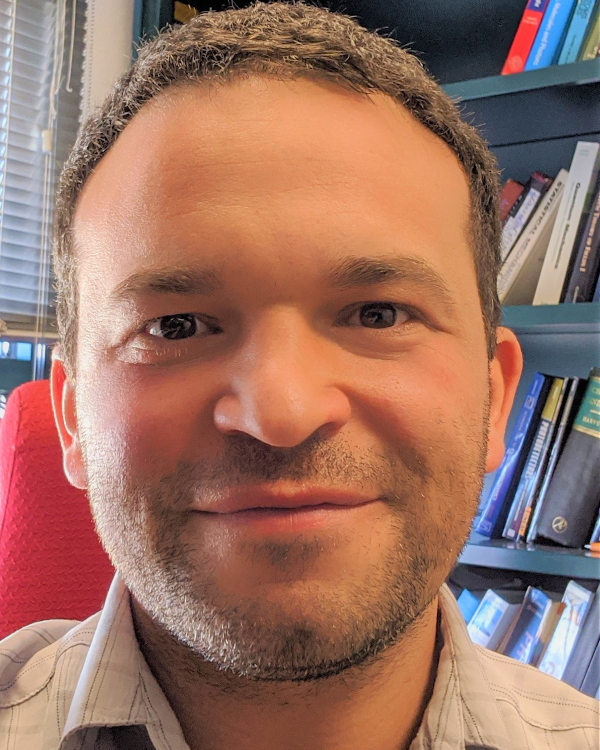
Victor M. Acosta, Ph.D.
University of New Mexico
Project Title: Nuclear Magnetic Resonance Microscope Based on Diamond Quantum Sensors
Grant ID: DP2-GM140921
Funded by the National Institute of General Medical Sciences
Victor Acosta is an Assistant Professor of Physics and a member of the Center for High Technology Materials at the University of New Mexico (UNM). He received a PhD in Physics from UC Berkeley in 2011, where he performed atomic physics research with Dr. Dmitry Budker. Victor subsequently did a postdoc at Hewlett-Packard Laboratories in quantum optics and then spent 2 years as a research scientist in biophysics at Google Life Sciences. At UNM, the Acosta Lab is engaged in the field of quantum sensing, broadly defined as the use of quantum bits (qubits) to measure environmental parameters. The lab's model qubit is the Nitrogen-Vacancy center in diamond, which they use to image magnetic phenomena in condensed-matter and biological systems over a broad range of length scales.
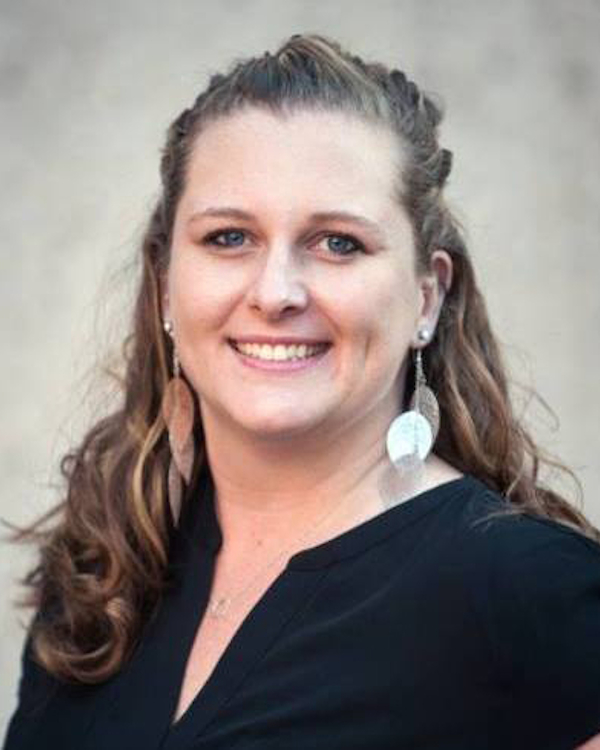
Alicia Allen, Ph.D., M.P.H.
University of Arizona, College of Medicine - Tucson
Project Title: Hormonal Response to Infant Caregiving: A Novel Strategy to Break the Opioid Relapse Cycle During the Postpartum Period
Grant ID: DP2-HD105541
Alicia Allen is an Assistant Professor at the University of Arizona in the Department of Family and Community Medicine, with a joint appointment in the Clinical Translational Sciences Program and Epidemiology and Biostatistics. She received her M.P.H. in Community Health Education and her Ph.D. in Social and Behavioral Epidemiology from the University of Minnesota. Dr. Allen is interested in exploring how hormones influence behaviors. Specifically, her research focuses on the intersection between substance misuse (e.g., opioids, cannabis, nicotine/tobacco) and women’s health (e.g., pregnancy, postpartum, hormonal contraceptive use). In addition to the NIH Director’s New Innovator Award, her RENEW (Recovery through ENgaging and Empowering Women) Team has received awards from Prevent Cancer Foundation, American Cancer Society, and National Institutes of Health.
Mekhail Anwar, M.D., Ph.D.
University of California, San Francisco
Project Title: Implantable Nanophotonic Sensors for In Vivo Immunoresponse
Grant ID: DP2-DE030713
Funded by the National Institute of Dental and Craniofacial Research and Common Fund
Mekhail is a physician-scientist at the University of California, San Francisco (UCSF), where he is an Associate Professor in the Department of Radiation Oncology. Driven by the challenges his patients face when fighting cancer - specifically addressing the vast heterogeneity in treatment response by identifying the optimal treatment to pair with each patient’s unique biology - he leads a laboratory focused on developing integrated circuits (or “computer chips”) for in vivo cancer sensing. After completing his Bachelors in Physics at UC Berkeley, where he was awarded the University Medal, Mekhail received his medical degree at UC San Francisco, and Ph.D. in Electrical Engineering and Computer Science from the Massachusetts Institute of Technology where his research focused on using micro-fabricated devices for biological detection. Mekhail went on to pursue residency in radiation oncology at UCSF, where he started his lab focusing on in vivo cellular imaging through development of a millimeter-scale fluorescence microscope. This prompted him to ask a key question - could we rapidly identify if a therapy is optimal by continually imaging the real-time multicellular from directly within the patient's own tumor? Mekhail is the recipient of the DOD PCRP Physician Research Training Award and the NIH Trailblazer award.
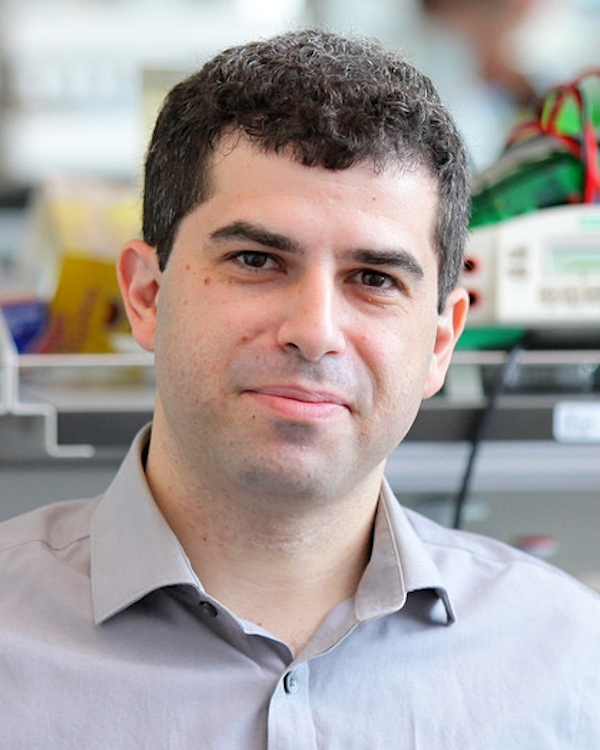
Dmitriy Aronov, Ph.D.
Zuckerman Mind Brain Behavior Institute and Columbia University
Project Title: Using a Specialized Behavior to Study the Neural Mechanisms of Episodic Memory
Grant ID: DP2-AG071918
Dmitriy Aronov is an Assistant Professor of Neuroscience at the Zuckerman Mind Brain Behavior Institute, Columbia University. He received his Ph.D. at the Massachusetts Institute of Technology, studying the neural mechanisms of early motor control in the juvenile songbird model system. He then completed postdoctoral training at Princeton University, studying neural activity in the hippocampus during navigation in virtual reality systems. His own lab combines these areas of expertise to understand how the hippocampus implements the storage and recall of episodic memories. For this, the lab has pioneered the use of specialized birds from the chickadee family, which cache many food items at scattered, hidden locations and use memory to find these caches later in time.
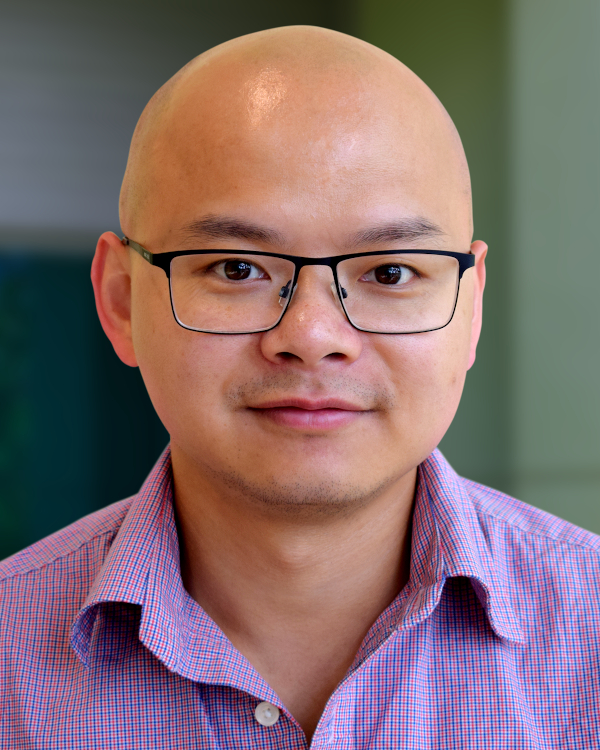
Huan Bao, Ph.D.
The Scripps Research Institute
Project Title: Developing Next-Generation Nanodiscs for the Study and Modulation of Membrane Proteins
Grant ID: DP2-GM140920
Funded by the National Institute of General Medical Sciences
Huan Bao is an Assistant Professor in the Department of Molecular Medicine at the Scripps Research Institute (TSRI). He obtained his B.S. in Biological Science from Wuhan University, his M.S. in Biochemistry from the Chinese Academy of Sciences, and his Ph.D. in Biochemistry and Molecular Biology from the University of British Columbia. As a Human Frontier Science Program postdoctoral fellow, he investigated the molecular mechanism of synaptic transmission in the laboratory of Dr. Edwin Chapman at the University of Wisconsin-Madison and Howard Hughes Medical Institute. At TSRI, his lab is interested in developing nanoparticles to target membrane proteins involved in neurological diseases.
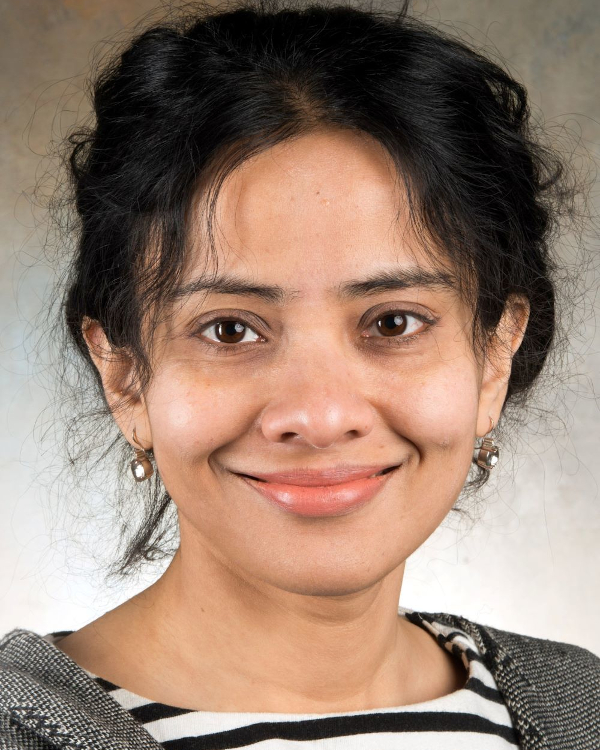
Anindita (Oni) Basu, Ph.D.
University of Chicago
Project Title: Profiling Transcriptional Heterogeneity in Microbial Cells at Single Cell Resolution and High-Throughput Using Droplet Microfluidics
Grant ID: DP2-AI158157
Basu is an Assistant Professor in Genetic Medicine at the University of Chicago and leads a multi-disciplinary research group that uses genomics, microfluidics, imaging and nano/bio-materials to develop new tools to aid in diagnosis and treatment of disease. Basu obtained B.S. in Physics and Computer Engineering at the University of Arkansas, Ph.D. in soft matter Physics at University of Pennsylvania, followed by post-doctoral studies in Applied Physics, Molecular Biology and Bioinformatics at Harvard University and Broad Institute. Her lab applies high-throughput single-cell and single-nucleus RNA-seq to map cell types and their function in different organs and organisms, using Drop-seq and DroNc-seq that Basu co-invented during her post-doctoral work. Other efforts in her group include developing new microfluidic and genomic tools to profile host-pathogen interactions at single cell resolution; single-cell RNA sequencing in microbial species; and combining 3D printing, controlled flow and imaging to study the roles of geometry, hemodynamics and bio-chemical factors that predispose dialysis patients to thrombosis and other complications.
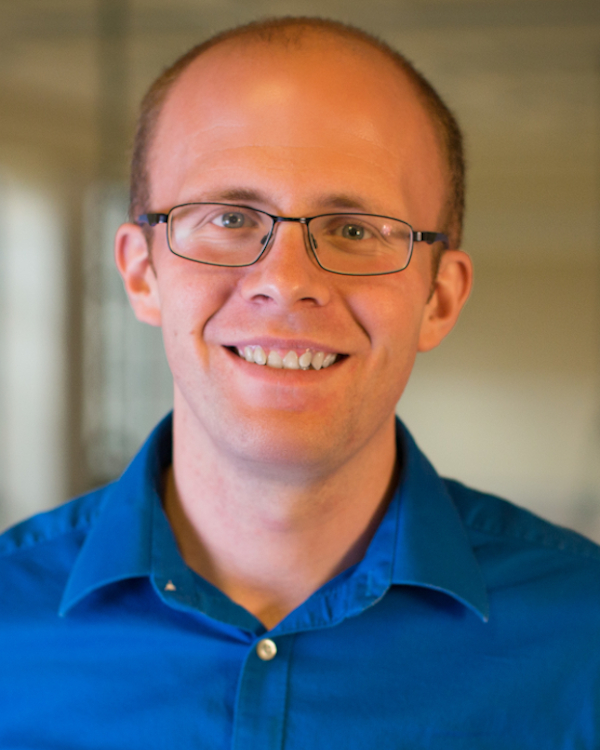
Michael E. Birnbaum, Ph.D.
Massachusetts Institute of Technology
Project Title: Repertoire-Scale T Cell Antigen Identification Via Peptide-MHC Lentivirus Display
Grant ID: DP2-AI158126
Michael received his PhD in Immunology from Stanford University, where he studied T cell recognition in the laboratory of K. Christopher Garcia. From 2014 to 2015, he conducted postdoctoral research in the laboratory of Carla Shatz, studying the role of immune receptors in synaptic guidance. In 2016, he started his lab in the Dept. of Biological Engineering at MIT and in the Koch Institute for Integrative Cancer Research. His lab develops new tools to better understand and manipulate T cell responses to infectious disease, cancer, and autoimmunity. They hope these tools and insights will lead to the next generation of immunotherapies.
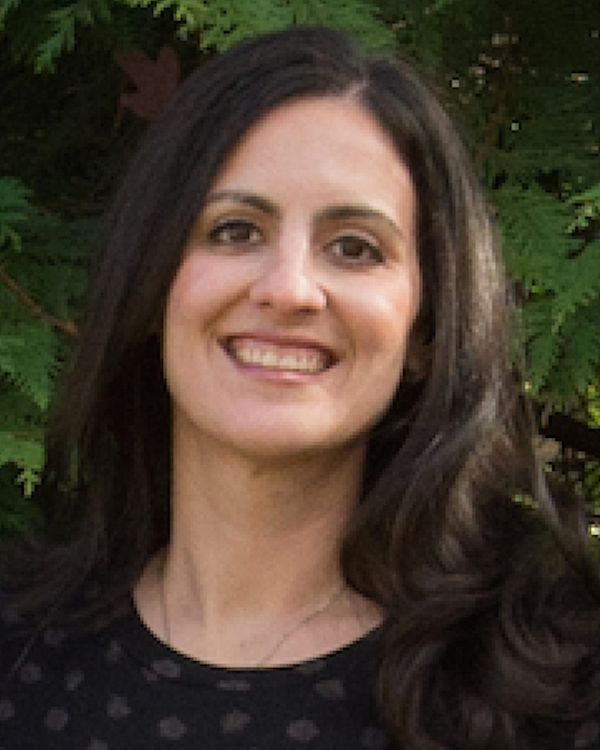
Christine M. Constantinople, Ph.D.
New York University
Project Title: Neural Circuit Mechanisms of Arithmetic for Economic Decision-Making
Grant ID: DP2-MH126376
Funded by the National Institute of Mental Health
Christine Constantinople is an Assistant Professor in the Center for Neural Science at New York University. Her lab uses a variety of circuit-based approaches to understand how animals assign value to different actions and outcomes, and use those value estimates to guide behavior. Dr. Constantinople received her B.S. in Neural Science from New York University and her Ph.D. in Neurobiology at Columbia University in the lab of Dr. Randy Bruno. She then worked with Dr. David Tank and Dr. Carlos Brody at the Princeton Neuroscience Institute as an HHMI-Helen Hay Whitney Postdoctoral Fellow. In addition to the NIH Director’s New Innovator Award, she has received a number of distinctions including the NIH Pathway to Independence Award, the Alfred P. Sloan Research Fellowship, and the Klingenstein-Simons Fellowship Award in Neuroscience.
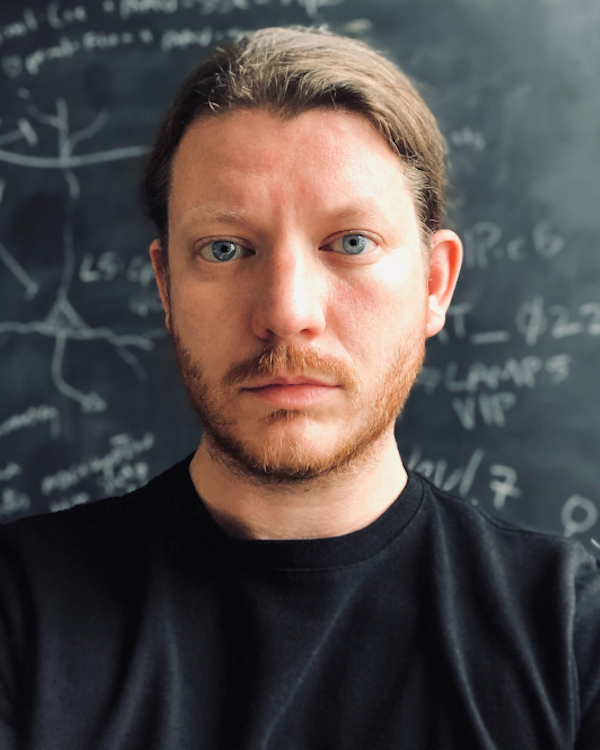
Gregory Corder, Ph.D.
University of Pennsylvania
Project Title: Harnessing Cortical Neuromodulation to Disrupt Pain Perception
Grant ID: DP2-GM140923
Funded by the National Institute of General Medical Sciences
Gregory Corder is an Assistant Professor in the Department of Psychiatry and Department of Neuroscience in the Perelman School of Medicine at the University of Pennsylvania. His lab aims to decipher the neural basis of how the brain generates the perception of pain, while discovering the pathological changes within these brain networks promoting the transition to chronic pain and drug abuse. He received his Ph.D. from the University of Kentucky investigating the endogenous opioid pain-modulation system, and then completed postdoctoral training at Stanford University using brain imaging to identify a neural circuit in the amygdala for the emotional component of pain. Now, he continues to develop multiple optical and genetic techniques to visualize and control brain circuits, with the goal of advancing translational therapeutics that reduce the mental health disorders associated with chronic pain and lessen the reliance on prescription opioids.
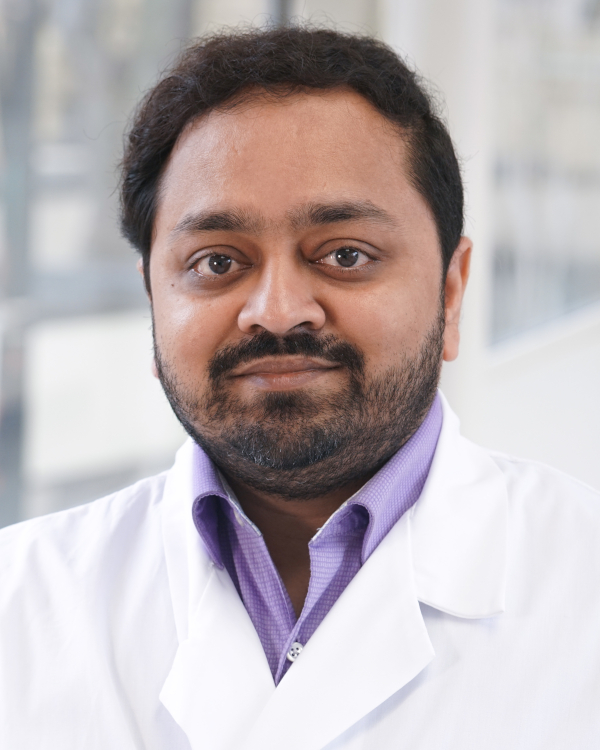
Subhamoy Dasgupta, Ph.D.
Roswell Park Comprehensive Cancer Center
Project Title: Decoding the Nuclear Metabolic Processes Regulating Gene Transcription
Grant ID: DP2-OD028896
Subhamoy Dasgupta is an Assistant Professor in the Department of Cell Stress Biology at Roswell Park Comprehensive Cancer Center. He earned his B.S. from Bangalore University and M.S. in Biochemistry from Banaras Hindu University (BHU), India before receiving his Ph.D. in Biomedical Sciences from University of North Texas Health Science Center at Fort Worth, where as a Department of Defense (DoD) predoctoral fellow he characterized the functions of a novel gene MIEN1 in tumor progression and metastasis. He then joined the laboratory of Bert W. O'Malley, M.D. at Baylor College of Medicine, where he studied the functions of transcriptional coregulators in tumor cell adaptation and survival, as a Susan G. Komen postdoctoral fellow. The Dasgupta Lab at Roswell aims to define the interplay between cellular metabolism and gene transcription that reprograms cancer into an aggressive metastatic disease. He is also a recipient of the NCI Transition Career Development Award, Susan G. Komen Career Catalyst Research Award, DoD Idea Development Award and Roswell Park Alliance Foundation Award.
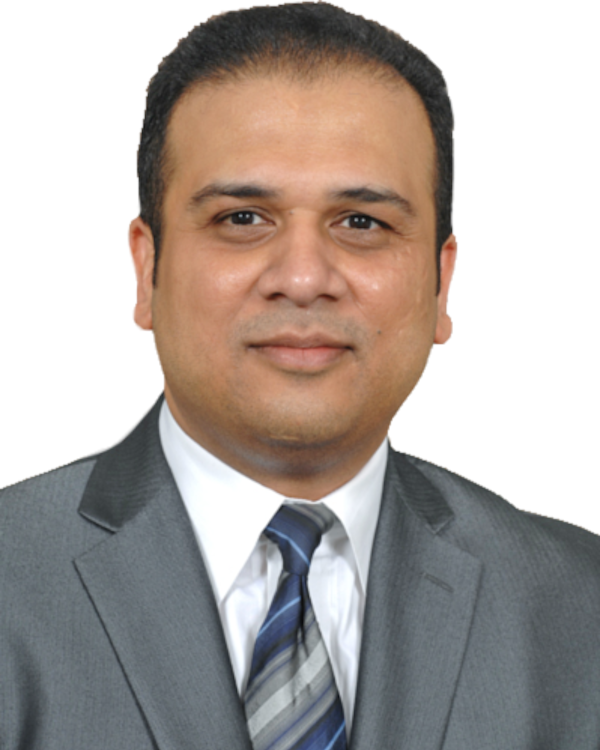
Deeptankar DeMazumder, M.D., Ph.D.
University of Cincinnati College of Medicine
Project Title: Eavesdropping on Heart-Brain Conversations During Sleep for Early Detection and Prevention of Fatal Cardiovascular Disease
Grant ID: DP2-HL157941
Dr. DeMazumder joined the University of Cincinnati in 2017 as Assistant Professor of Medicine, Director of the Artificial Intelligence Center of Excellence and a Clinical Cardiac Electrophysiologist after completing his Ph.D. at SUNY Stony Brook in Synaptic Electrophysiology, M.D. at Medical College of Virginia - Virginia Commonwealth University, Internship at Mount Sinai and Residency at University of Virginia in Internal Medicine, and clinical and research Fellowships at Johns Hopkins University in Cardiology, Clinical Cardiac Electrophysiology, and Neurocardiology. His longstanding goals are to transform clinical observations into testable research hypotheses, translate basic research findings into medical advances, and evaluate personalized treatment protocols in rigorous clinical trials, while caring for patients with heart rhythm disorders and improving their quality of life. His research integrates: (i) basic mechanistic studies of stress-induced alterations in brain-heart signaling that lead to critical illness, such as heart failure and/or sudden cardiac death; and (ii) complementary translational research that employs novel machine learning approaches in prospective multicenter clinical studies to reveal new subclinical indicators of critical illness. His paradigm-shifting discoveries include: (i) identification of the missing link between autonomic, inflammatory and redox modulation of multiple body signals that reflects an early response to the onset of critical illness that typically eludes clinical detection; and (ii) a new way of analyzing body signals to detect “hidden” critical illness that can lead to early treatment and improved clinical outcomes. Dr. DeMazumder’s research has been supported by the NIH NHLBI K99, R00 and U54 awards, the Department of Defense, the Leducq Foundation, an AHA Transformational Project Award, multiple awards from the AHA Institute for Precision Cardiovascular Medicine, and computational power from the AHA Precision Medicine Platform.
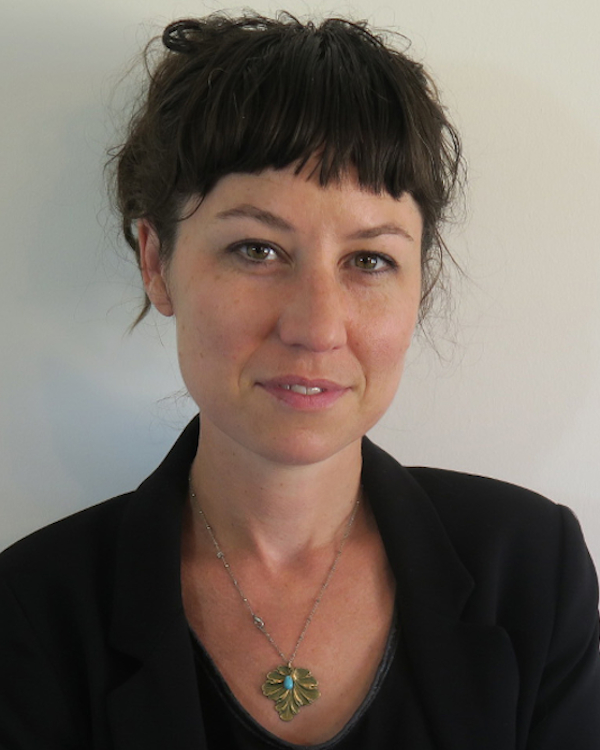
Annegret L. Falkner, Ph.D.
Princeton University
Project Title: Generating Pro-Resilient States Through Individualized Circuit Read-Write Therapeutics
Grant ID: DP2-MH126375
Funded by the National Institute of Mental Health
Dr. Annegret L. Falkner is an assistant professor at the Princeton Neuroscience Institute. Her lab focuses on understanding how social experiences, including social dominance and defeat, lead to the generation of persistent affective states. She received her B.A. from Oberlin College and her Ph.D. from Columbia University in Neuroscience, in the lab of Mickey Goldberg. During her postdoctoral fellowship at New York University, she discovered how changing activity in the brain’s “social decision-making network” links socially motivated internal states to social actions. Her current lab takes a multi-level approach to understand how circuit and synaptic changes to this network may underlie the ability for an individual to display adaptive behaviors, including resilience in the face of social stress. For her work, Dr. Falkner has been awarded an NIH Pathway to Independence Award, a NARSAD Young Investigator’s Award, and an Alfred P. Sloan Research Fellowship.
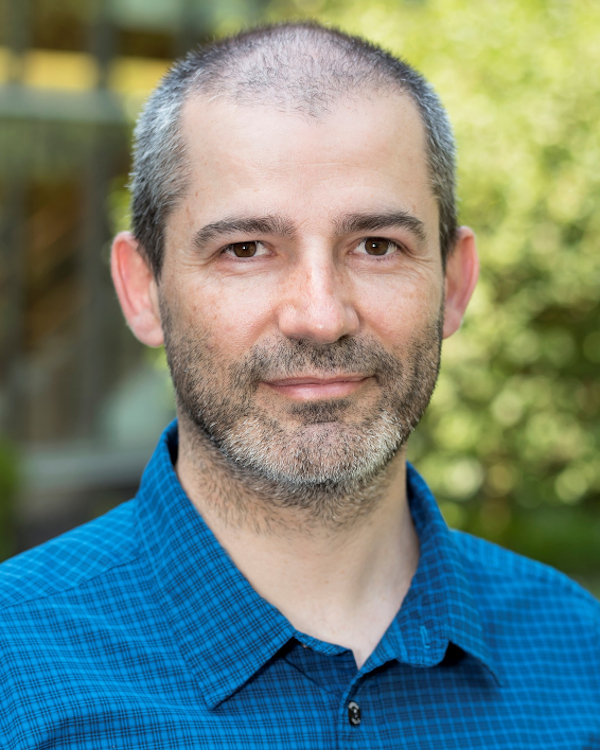
Joan Font-Burgada, Ph.D.
Fox Chase Cancer Center
Project Title: New Tools for Understanding Metastasis Through Tissue Resident Cells: Enabling an Extensive Medicine Strategy for Metastatic Disease
Grant ID: DP2-CA258224
Joan Font-Burgada is an Assistant Professor in the Cancer Biology Program at the Fox Chase Cancer Center in Philadelphia with Adjunct appointments at Temple and Drexel Universities. His laboratory studies different converging forces during tumor initiation such as oncogenic selection, immune surveillance and metastatic invasion. He received his Ph.D. from the University of Barcelona under the supervision of Dr. Ferran Azorin at the Institute for Research in Biomedicine. He then joined Dr. Michael Karin’s laboratory at the University of California San Diego for his postdoctoral studies. In addition to the New Innovator Award, Dr. Font-Burgada is the recipient of the NIH K99/R00 Pathway to Independence Award, Hertzberg-Schechter Prize for Stem Cell Research and the Institute for Research in Biomedicine of Barcelona Alumni of Excellence Award.
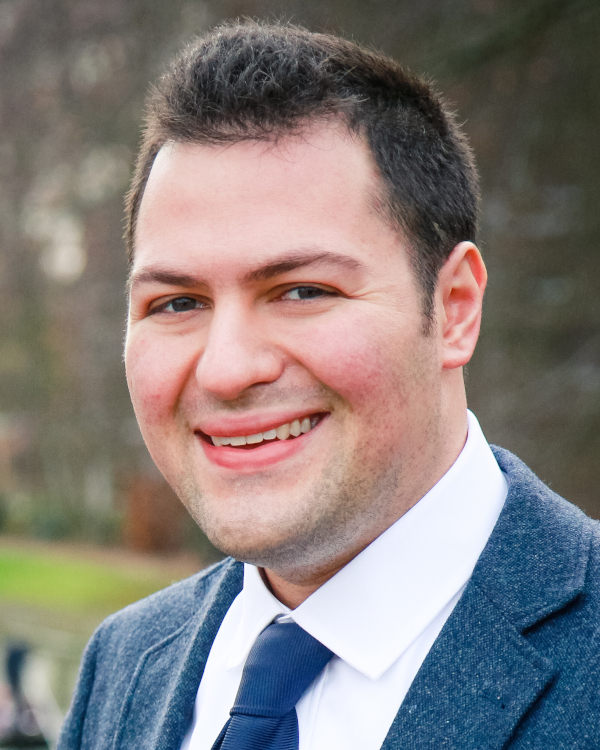
Stephen D. Fried, Ph.D.
Johns Hopkins University
Project Title: Watching Proteins Fold (or Misfold) In Vivo with Mass Spectrometry
Grant ID: DP2-GM140926
Funded by the National Institute of General Medical Sciences
Stephen Fried received two S.B. degrees (2009) from MIT in chemistry and physics and completed his doctoral training at Stanford under the mentorship of Prof. S. G. Boxer in 2014. Stephen's doctoral work focused on understanding the physical principles underpinning enzymes’ great catalytic power. From 2014 to 2018, Stephen was a Junior Research Fellow of King’s College and conducted research at the MRC Laboratory of Molecular Biology in Cambridge, UK. Stephen joined the Department of Chemistry at Johns Hopkins University in 2018 as an Assistant Professor. His lab works at the crossroads of protein biophysics, proteomics, and synthetic biology, and focuses on elucidating how proteins fold and assemble into complex molecular architectures in their native cellular context. In 2019, he became a member of the Program in Molecular Biology (PMB), and in 2020, he became an Assistant Professor in the Department of Biology, by courtesy.
Feng Guo, Ph.D.
Indiana University Bloomington
Project Title: An Acoustofluidic Avidity Cytometer for Massive Parallel Profiling Single Autoreactive T Cell in Autoimmune Disease
Grant ID: DP2-AI160242
Feng Guo is an Assistant Professor of Intelligent Systems Engineering at Indiana University Bloomington. Feng received his B.S. in Physics from Wuhan University in 2007, and his Ph.D. in Engineering Science and Mechanics at the Pennsylvania State University in 2015. During his Ph.D. studies, Feng developed pioneering 3D acoustic tweezers and acoustofluidics technologies for single cell manipulation and analysis. As a postdoctoral fellow, he worked on the development of biofabrication technologies for neural tissue engineering at Stanford University School of Medicine. Started in 2017, his lab at IU Bloomington aims to develop intelligent biomedical devices and systems for the fundamental research and emerging translational applications in inflammatory diseases, particularly focusing on multiple sclerosis and cancer immunotherapy.
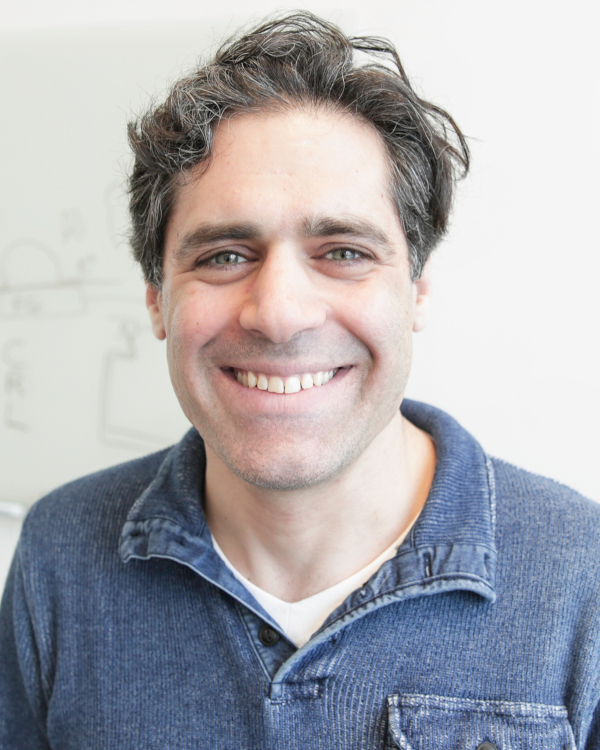
Aviad Hai, Ph.D.
University of Wisconsin-Madison
Project Title: Achieving Direct Functional Imaging of Brain Electrophysiology: Nanofabricated Cell-Sized Electronic Sensors for Magnetic Resonance Imaging
Grant ID: DP2-NS122605
Funded by the National Institute of Neurological Disorders and Stroke and Common Fund
Dr. Aviad Hai is a neuroengineer and a neuroscientist whose work focuses on developing implantable and injectable sensors for accessing the entire nervous system—towards achieving a broader understanding of brain function. In 2019, Dr. Hai joined the Department of Biomedical Engineering at the University of Wisconsin-Madison as an assistant professor, where his group is developing cutting edge electrical, magnetic, and electromagnetic sensors for large-scale recording and stimulation of brain activity. Dr. Hai received his Ph.D. from the Hebrew University of Jerusalem, where he pioneered nano-scale devices for multiplexed recording of neuronal intracellular signals. He later joined the department of Biological Engineering at the Massachusetts Institute of Technology, where he developed wireless implantable sensors that detect electromagnetic fields in the brain, and molecular technologies for direct imaging of neurotransmitter dynamics across large volumes of the brain. His efforts cohere with the goal of providing neuroscientists and neurologists with a complete toolbox for understanding and modulating electrical and neurochemical activity across the entire volume of the brain in parallel. Dr. Hai is the recipient of the NIH NIBIB Mentored Research Scientist Development Award (K01), a long-term fellowship from the European Molecular Biology Organization (EMBO) and a fellowship from the Edmond & Lily Safra Center for Brain Sciences.
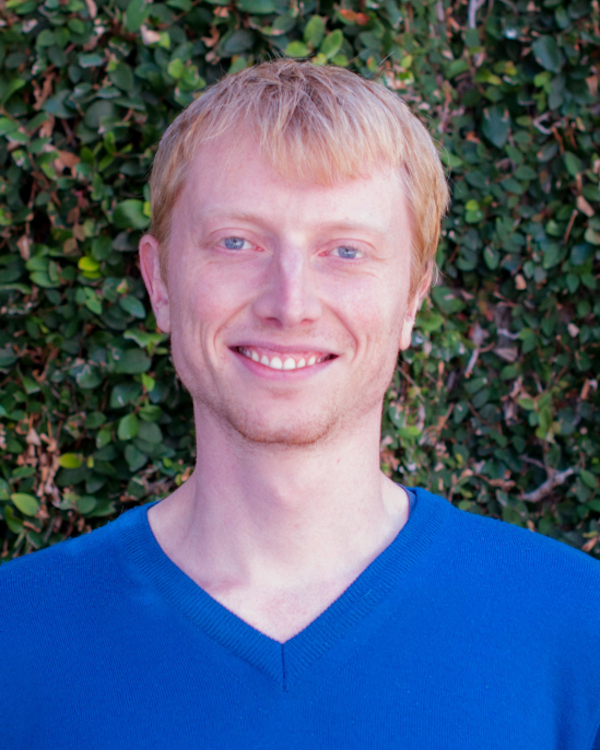
Anders Sejr Hansen, Ph.D.
Massachusetts Institute of Technology
Project Title: Dynamic Bottom-Up Dissection of Chromatin Looping and Gene Regulation
Grant ID: DP2-GM140938
Anders Sejr Hansen is an Assistant Professor in the Department of Biological Engineering at MIT. He received his undergraduate degree in Chemistry from Oxford University, completed a PhD in Chemistry and Chemical Biology with Erin O’Shea at Harvard University, and carried out postdoctoral studies in biophysics and molecular biology with Robert Tjian and Xavier Darzacq at the University of California, Berkeley. At MIT, the Hansen lab is broadly interested in understanding 3D genome structure and function. Towards this goal, they develop new super-resolution imaging approaches to follow single biomolecules from birth to death inside living cells. In addition to the NIH Director’s New Innovator Award, the Hansen lab is supported by an NIH K99/R00 Pathway to Independence Award.
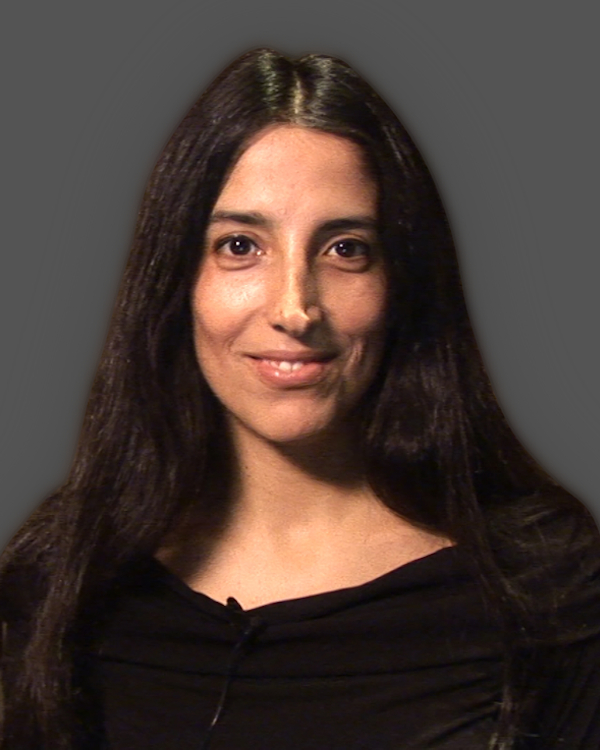
Keren Haroush, Ph.D.
Stanford University
Project Title: Unraveling Neuronal Circuits and Causal Underpinnings of Long Time-Scale Social Strategic Behaviors
Grant ID: DP2-MH126142
Keren Haroush is an Assistant Professor of Neurobiology at Stanford University School of Medicine and an affiliate faculty of the Wu Tsai Neurosciences Institute, Bio-X, and the Maternal & Child Health Research Institute. Keren received her Ph.D. in Neurobiology at the Hebrew University under the guidance of Dr. Shaul Hochstein, and obtained her postdoctoral training at Massachusetts General Hospital, Harvard Medical School, with Dr. Ziv Williams. Her research focuses on understanding the neural circuits underlying dynamic social interactions. she pioneered the study of cooperation and social prediction at single neuron resolution in the primate brain, thereby providing some of the earliest mechanistic insights about the neuronal basis for a symbolic theory of mind. In addition to the NIH Director’s New Innovator Award, Keren’s research has been recognized with the Society for Neuroscience’s Peter and Patricia Gruber International Research Award, the Simon’s’ Foundation Autism Research Initiative Bridge to Independence Award, NARSAD Young Investigator Grant, Whitehall Foundation Research Grant and a Sloan Fellowship.
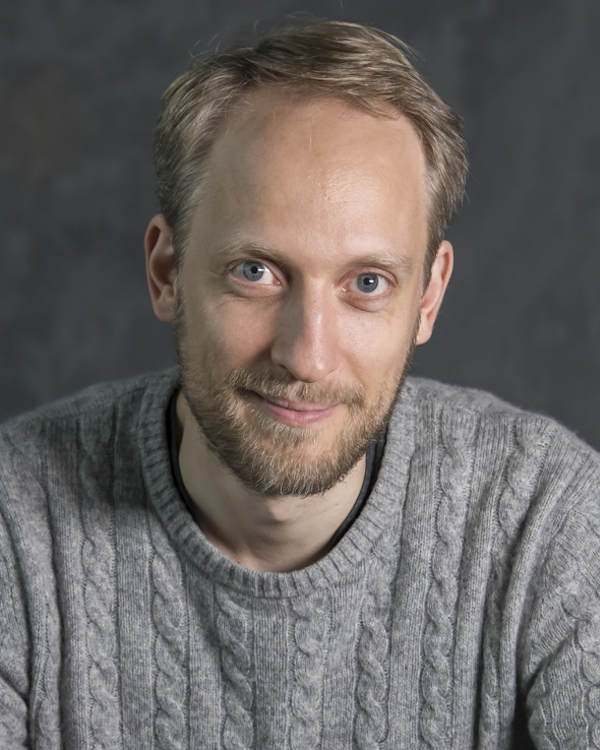
Doeke Hekstra, Ph.D.
Harvard University
Project Title: Identifying Principles of Protein Mechanics by Applying Force and Observing Motion
Grant ID: DP2-GM141000
Doeke received his PhD from the Rockefeller University, working with Dr. Stanislas Leibler on the development of closed ecosystems as model systems for population dynamics and evolution. Working with Dr. Rama Ranganathan at UT Southwestern Medical Center, he established proof of concept of a new experimental method to study the physical basis of protein function--electric field stimulated time-resolved X-ray crystallography, or EF-X. As a PI, his lab is developing EF-X into a method to systematically map the physics of proteins.
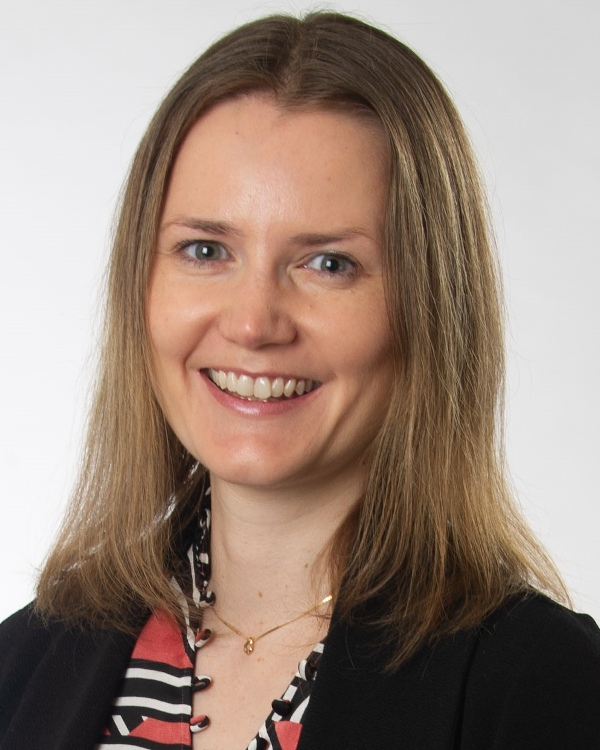
Rainbo Hultman, Ph.D.
University of Iowa and Iowa Neuroscience Institute
Project Title: Electrical Connectomics: An Innovative Approach for Dissecting Brain Mechanisms Underlying Behavioral States
Grant ID: DP2-MH126377
Funded by the National Institute of Mental Health
Rainbo Hultman is an assistant professor in the Dept. of Molecular Physiology & Biophysics in the Iowa Neuroscience Institute at the University of Iowa. Dr. Hultman has acquired an interdisciplinary expertise, having completed her PhD in biochemistry at Duke University and her postdoctoral studies in the Laboratory for Psychiatric Neuroengineering at Duke University Medical Center. Her work uses a novel approach aimed at probing brain-wide networks of electrical activity using pre-clinical rodent models of disease. She and her team are working to identify the role of these networks in mediating complex behavioral states related to neurological and psychiatric disorders. The overarching goal of these studies is to identify brain-network based routes to novel therapeutics for complex brain disorders by dissecting the circuit, cellular, and molecular factors that contribute to the organization of these networks, and ultimately to behavior.
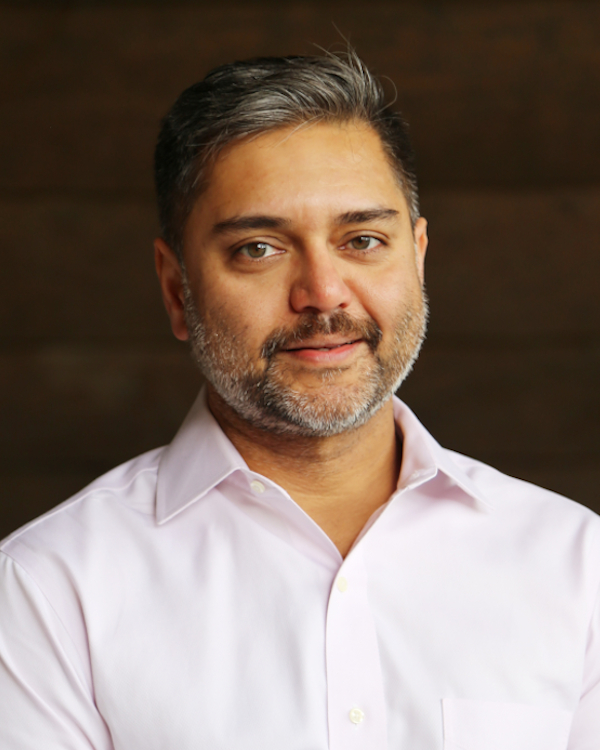
Siddhartha Jaiswal, M.D., Ph.D.
Stanford University
Project Title: Clonal Hematopoiesis in Human Aging and Disease
Grant ID: DP2-HL157540
Dr. Jaiswal is an investigator at Stanford University in the Department of Pathology, where his lab focuses on understanding the biology of the aging hematopoietic system. As a post-doctoral fellow, he identified a common, pre-malignant state for blood cancers by reanalysis of large sequencing datasets. This condition, termed "clonal hematopoiesis", is characterized by the presence of stem cell clones harboring certain somatic mutations, primarily in genes involved in epigenetic regulation of hematopoiesis. Clonal hematopoiesis is prevalent in the aging population and increases the risk of not only blood cancer, but also cardiovascular disease and overall mortality. Understanding the biology of these mutations and how they contribute to the development of cancer and other age-related diseases is the current focus of work in the lab.
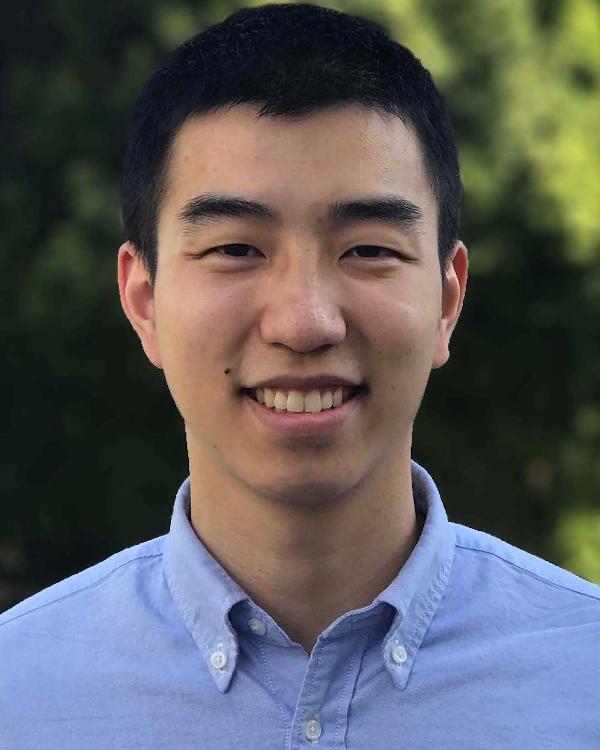
Jonathan Kao, Ph.D.
University of California, Los Angeles
Project Title: Next Generation Brain-Machine Interfaces Controlled Synergistically with Artificial Intelligence
Grant ID: DP2-NS122037
Jonathan Kao is an Assistant Professor of Electrical and Computer Engineering at the University of California, Los Angeles. He received a B.S., M.S., and Ph.D. in Electrical Engineering from Stanford University. His Ph.D. and postdoc were under the guidance of Dr. Krishna Shenoy. At UCLA, his lab uses statistical tools and machine learning to study neural computation and develop brain-machine interfaces for people with paralysis. In addition to the NIH Director’s New Innovator Award, he is the recipient of a NSF CAREER Award, a Brain & Behavior Research Foundation Young Investigator Grant, and a Hellman Fellowship.
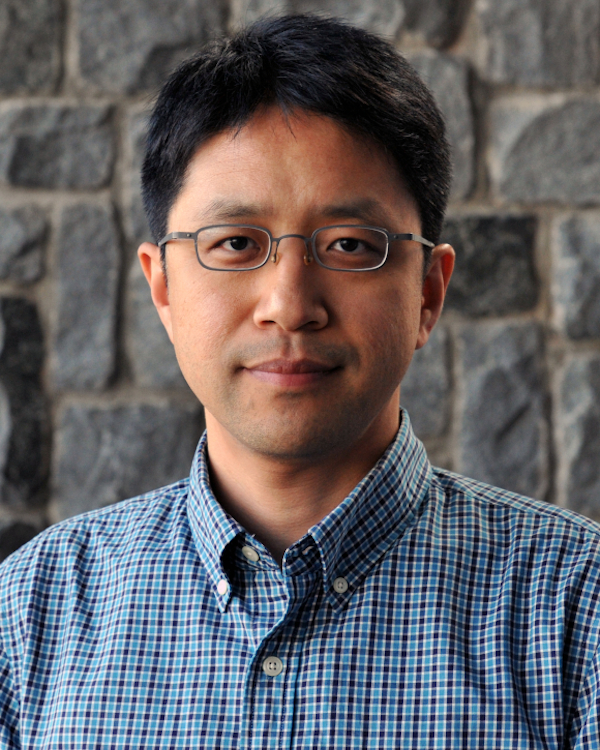
Sung Soo Kim, Ph.D.
University of California, Santa Barbara
Project Title: Neural Circuit Mechanisms Underlying Dynamic Stimulus Selection
Grant ID: DP2-EY032737
Sung Soo Kim received his undergraduate and Master’s degrees in Electrical Engineering from Seoul National University, where a project on artificial neural networks ignited his interest in biological neural networks. During his Ph.D. with the late Steven Hsiao at the Johns Hopkins University, he explored how finger positions and touch sensation are combined in the primate cortex for 3D shape perception (stereognosis). Keen to understand neural network dynamics at the level of well-defined circuits, he switched from mammals to Drosophila, joining Vivek Jayaraman's lab at the Howard Hughes Medical Institute’s Janelia Research Campus, where he combined theory with experiment to investigate how the fly’s brain generates and maintains the insect’s internal sense of direction. Since he moved to the University of California, Santa Barbara as an Assistant Professor in the Department of Molecular, Cellular, and Developmental Biology, he has been studying neural mechanisms underlying visually-guided navigation. In addition to the NIH Director’s New Innovator Award, the Kim lab is supported by the Searle Scholars Program to elucidate how higher brain functions emerge from complex neural dynamics.
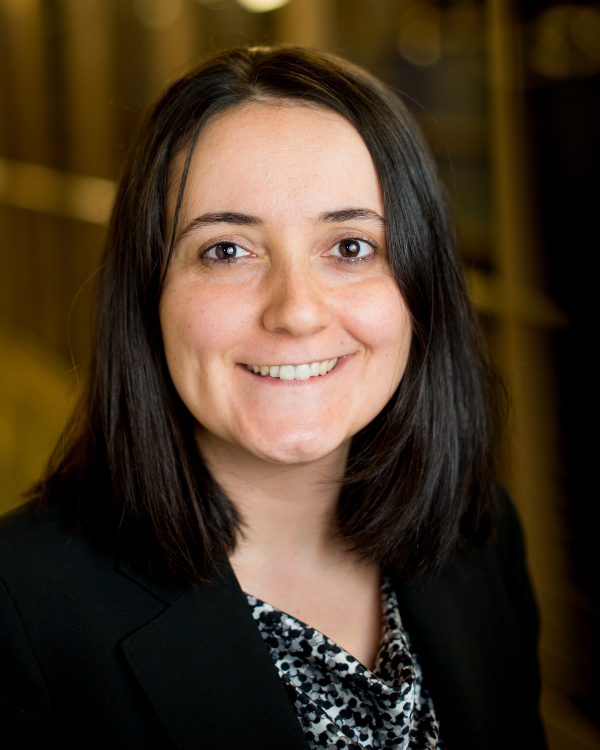
Duygu Kuzum, Ph.D.
University of California, San Diego
Project Title: E-Organoids: Functional Brain Organoids Co-Grafted with Transparent Microthreads
Grant ID: DP2-EB030992
Funded by the National Institute of Biomedical Imaging and Bioengineering
Duygu Kuzum is an Associate Professor in Electrical and Computer Engineering Department at University of California, San Diego. She received her Ph.D. in Electrical Engineering from Stanford University. Following her Ph.D. research in nanoelectronics, she joined University of Pennsylvania for postdoctoral research in Bioengineering and Neurology. Her research applies innovations in nanoelectronics to develop new multimodal neural interfaces, which will help to better understand circuit-level computation and information processing in the brain. In addition to the NIH Director’s New Innovator Award, she was a recipient of Innovators under 35 by MIT Technology Review, ONR Young Investigator Award, IEEE Nanotechnology Council Young Investigator Award, and NSF Career Award.
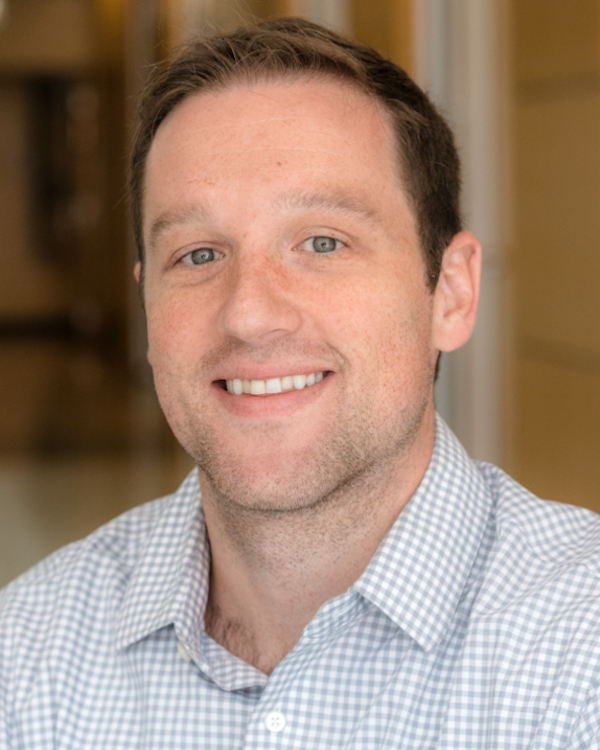
Benjamin M. Larimer, Ph.D.
University of Alabama Birmingham
Project Title: Site-Specific Immune Cell Activation Detection for Improving Individualized Cancer Immunotherapy
Grant ID: DP2-CA261453
Funded by the National Cancer Institute
Ben Larimer, Ph.D., is an Assistant professor in the Department of Radiology and an Associate Scientist in the O'Neal Comprehensive Cancer Center at the University of Alabama Birmingham. He obtained his Ph.D. at the University of Missouri in the lab of Dr. Susan Deutscher and trained as a postdoctoral fellow in the lab of Dr. Umar Mahmood at Massachusetts General Hospital and the Harvard Medical School. His lab focuses on the development and utilization of clinically-translatable non-invasive imaging agents that can be used to visualize tumor and immune cell biology. His contributions include the discovery of a first-in-class granzyme B PET tracer that is currently being investigated in first-in-human studies.
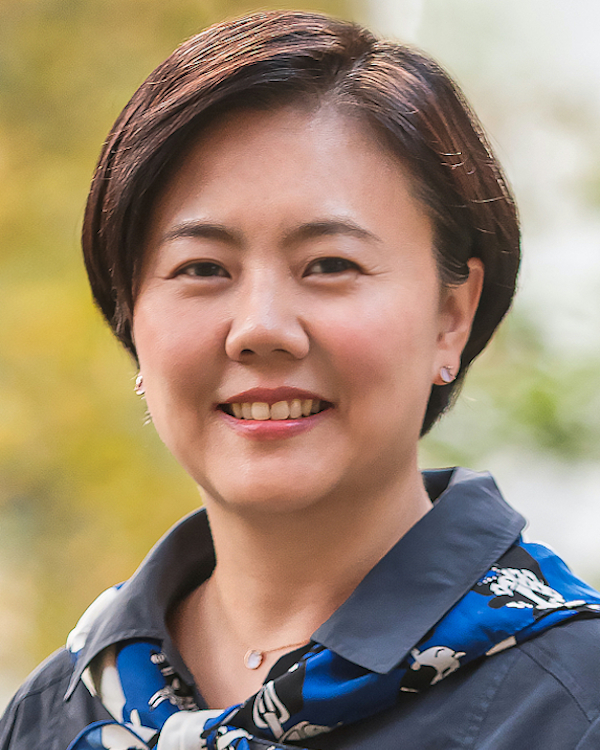
Eunjung (Alice) Lee, Ph.D.
Boston Children's Hospital, Harvard Medical School, and Broad Institute
Project Title: Mechanism for Endogenous Retroelements to Mimic Ancient Exogenous Identities in Aging and Diseased Human Tissue
Grant ID: DP2-AG072437
Alice is an Assistant Professor in the Division of Genetics and Genomics at Boston Children’s Hospital and Harvard Medical School, and an Associate Member of the Broad Institute. She leads a research program focusing on the role of transposable elements and somatic mutations in various human conditions. She received her B.S. and M.S. in Computer Science, a Ph.D. in Bioinformatics from KAIST (Korea Advanced Institute of Science and Technology), and studied systems biology under the guidance of Trey Ideker at the University of California, San Diego with a visiting fellowship. She then completed her postdoctoral training under the mentorship of Peter J. Park at Harvard Medical School, where she reported somatic retrotransposition in human cancers and in the human brain by developing computational methods for whole genome and single-cell sequencing data. Alice has received an NIH K01 Career Development Award, an SUHF Foundation Young Investigator Award, and a Charles Hood Foundation Research Award.
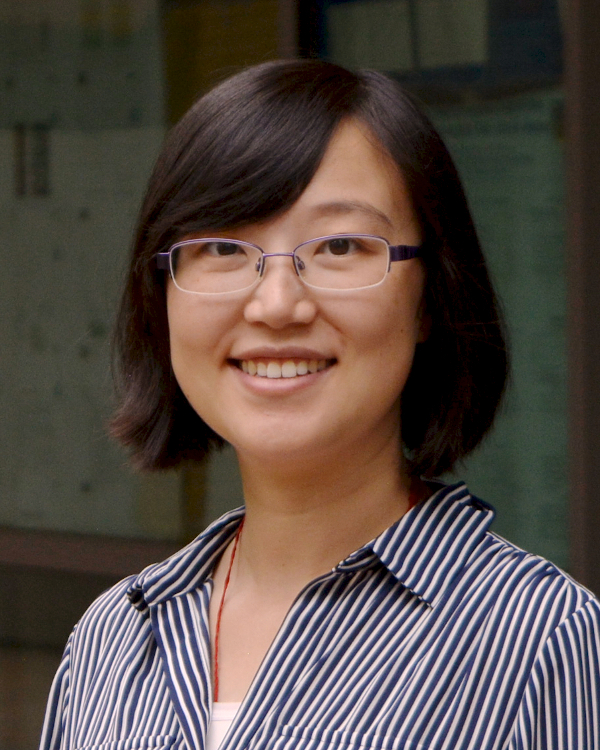
Yanran Li, Ph.D.
University of California, Riverside
Project Title: Reprogramming Plant Perception for Novel Plant Natural Products Discovery
Grant ID: DP2-AT011445
Yanran Li is an assistant professor in Chemical and Environmental Engineering, the Institute for Integrative Genome Biology, and the Center for Plant Cell Biology at the University of California, Riverside. She obtained her B.S. in Chemistry from Nankai University, her B.E. in Chemical Engineering from Tianjin University, and her PhD in Chemical and Biomolecular Engineering from the University of California, Los Angeles, in the laboratory of Dr. Yi Tang's group, working on elucidating and engineering the biosynthesis of bacterial and fungal aromatic polyketides. She then spent one year in Dr. Rustem Ismagilov's group at the California Institute of Technology, using microfluidic devices to investigate microbial interactions. From 2013 to 2016, she was a postdoctoral fellow in Dr. Christina Smolke's laboratory at Stanford University, working on the engineered biosynthesis of plant alkaloids in yeast. Her research group at UC Riverside is currently working on the discovery, elucidation, and engineering of plant secondary metabolism.
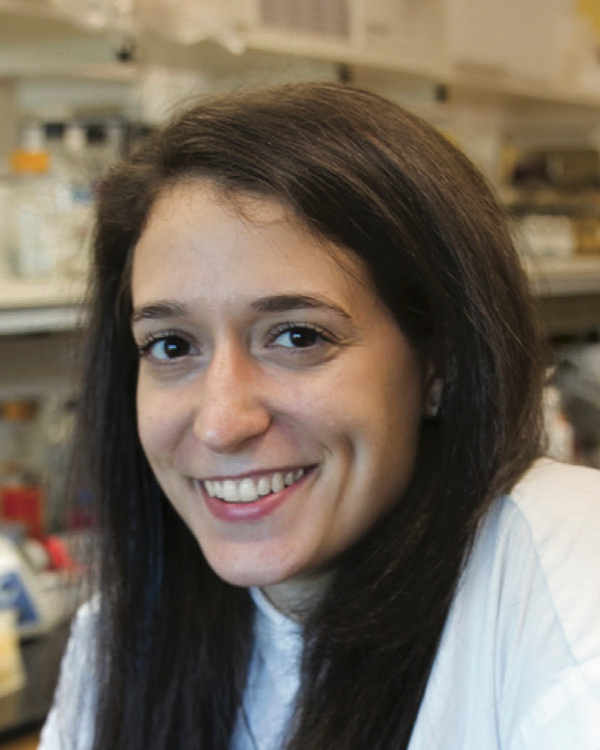
Tami Lieberman, Ph.D.
Massachusetts Institute of Technology, Broad Institute, and Ragon Institute
Project Title: An Evolutionary Framework for Identifying Determinants of Colonization in Human Microbiomes
Grant ID: DP2-GM140922
Funded by the National Institute of General Medical Sciences
Tami Lieberman is an Assistant Professor at MIT, in the Institute for Medical Engineering and Sciences and the Department of Civil and Environmental Engineering, and an Associate Member of both the Broad Institute and Ragon Institute. Dr. Lieberman received a B.A. in Biological Sciences, with a minor in Mathematics from Northwestern University and a PhD in Systems Biology from Harvard University. As a graduate student in Roy Kishony’s laboratory, she studied bacterial evolution during human infections at the whole-genome level and developed experimental tools for understanding the evolution of antibiotic resistance. She then did a postdoc in Eric Alm’s laboratory at MIT, where she used the computational tools developed in her PhD to discover the first evidence that bacteria in the gut microbiome change via adaptive mutations even during health. The Lieberman Lab is continuing to develop new tools to track and model within-person bacterial evolution, with a focus on the skin microbiome, towards revealing mechanistic understanding of community assembly in real human microbiomes and the impact of in-microbiome mutations for health and disease.
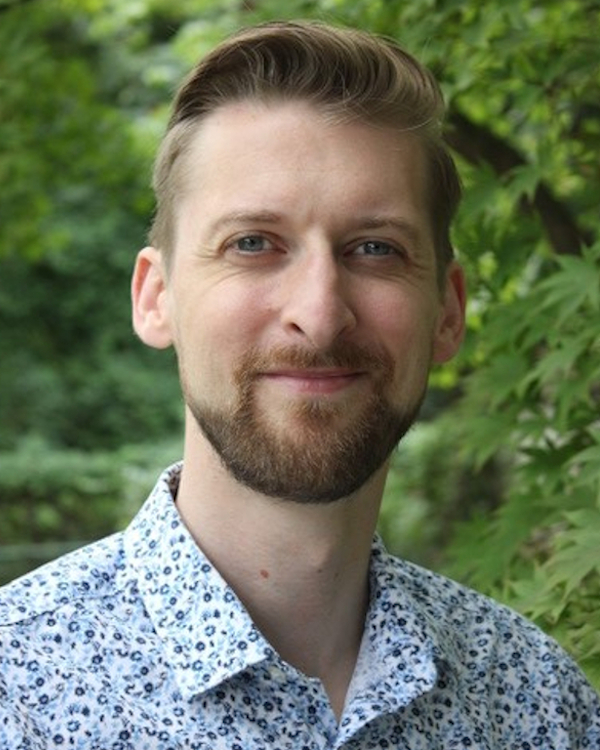
Thomas A. Longden, Ph.D.
University of Maryland School of Medicine
Project Title: Vascular Signaling Plasticity - Novel Concepts and Tools for Studying Neurovascular Interactions in Health and Disease
Grant ID: DP2-NS121347
Thomas Longden is an Assistant Professor in the department of physiology at the University of Maryland School of Medicine. Tom studied pharmacology at the University of Manchester in the UK, where he earned a Ph.D. for his work on neurovascular coupling in the labs of Gillian Edwards and Arthur Weston. He then moved to the US to undertake postdoctoral training under the guidance of Mark Nelson at the University of Vermont, where he studied electrical signaling within the brains capillary network. His lab is interested in the molecular mechanisms that control of blood flow in the brain and how these are disrupted in disease states, with a particular focus on aging and dementia. In addition to the NIH Director’s New Investigator Award, his lab is also supported by the National Institute on Aging and the American Heart Association.
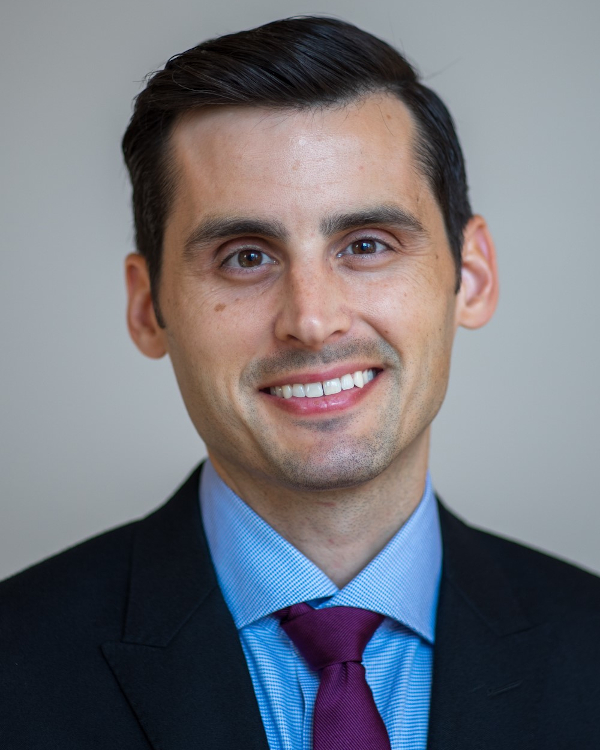
Miles A. Miller, Ph.D.
Massachusetts General Hospital and Harvard Medical School
Project Title: Dissection of In Situ Myeloid Signaling Using Image-Guided Synthetic Control
Grant ID: DP2-CA259675
Miles Miller is an Assistant Professor in the Department of Radiology at Harvard Medical School and Principal Investigator in the Center for Systems Biology at Massachusetts General Hospital. His lab is interested in mechanisms of spatial dynamics in mammalian tissue, especially focusing on inflammation and cancer. His research integrates in vivo imaging, nanomaterials, cell biology, and computation to shed light on multicellular regulation within disease microenvironments. As a postdoctoral fellow, Dr. Miller trained with Dr. Ralph Weissleder at MGH to understand and optimize nanotherapeutic behaviors in solid cancers. He received a Ph.D. in Biological Engineering from Massachusetts Institute of Technology under the guidance of Profs. Douglas Lauffenburger and Linda Griffith, where he studied feedback networks of protease and kinase activities and their impact on cell migration.
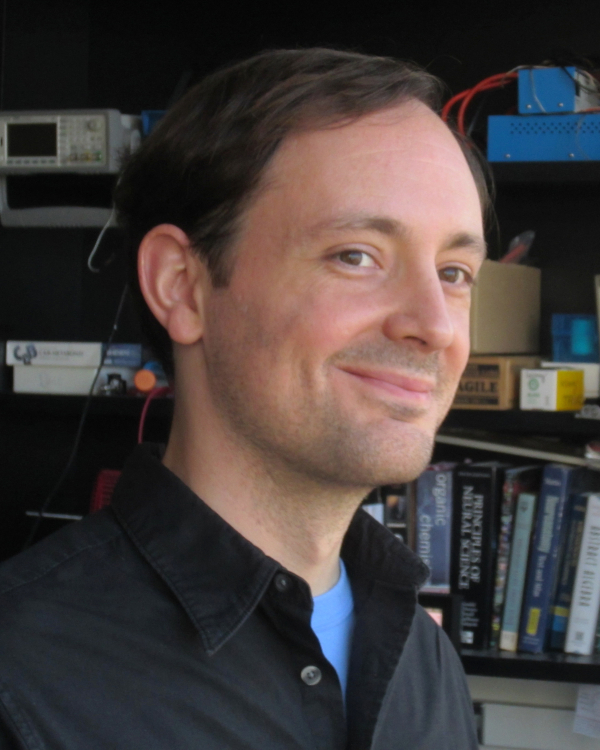
Andrew Miri, Ph.D.
Northwestern University
Project Title: Combining Physiological, Genetic, and Computational Approaches with Naturalistic Climbing Behavior to Elucidate the Functional Elements of Descending Motor Control
Grant ID: DP2-NS120847
Andrew received undergraduate degrees in neuroscience and mathematics from Brown University. After a stint as a high school mathematics teacher in Boston, he earned a Ph.D. from Princeton University under the guidance of David Tank. He then conducted postdoctoral research at Columbia University in the laboratory of Tom Jessell. Now an assistant professor in the Neurobiology Department at Northwestern University, Andrew studies the neural mechanisms underlying mammalian movement. His awards include a predoctoral fellowship from the National Science Foundation, a postdoctoral fellowship from the Helen Hay Whitney Foundation, the Searle Scholar Award, and a Sloan Research Fellowship.
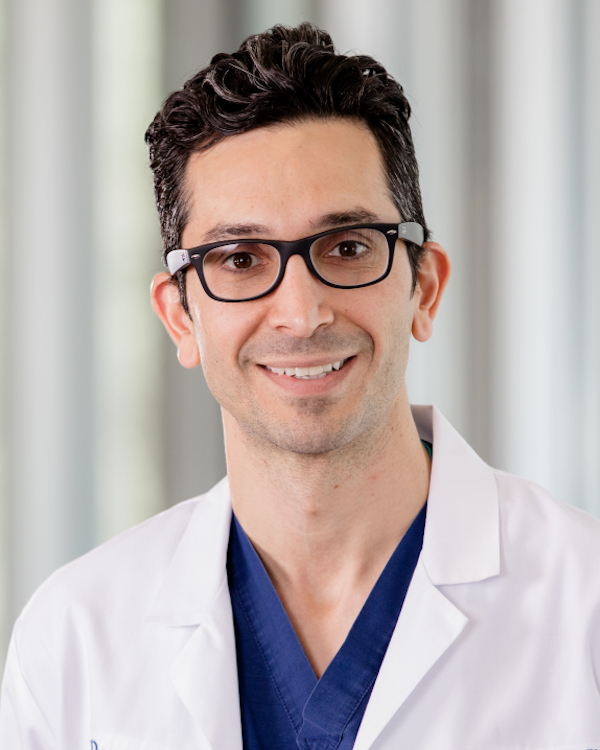
Zaman Mirzadeh, M.D., Ph.D.
Barrow Neurological Institute
Project Title: Hypothalamic Neurocircuit Remodeling to Treat Diabetes
Grant ID: DP2-DK128802
Zaman Mirzadeh is an Assistant Professor and Neurosurgeon-scientist in the Department of Neurosurgery at the Barrow Neurological Institute. He completed his MD and PhD degrees at the University of California, San Francisco in the Medical Scientist Training Program, where his graduate work with Arturo Alvarez-Buylla revealed the cellular determinants of planar polarity in the brain’s ventricular zone and the epithelial organization of adult neural stem cells. He completed postdoctoral training with Michael W. Schwartz at the University of Washington, studying perineuronal nets and plasticity in hypothalamic circuits controlling metabolic homeostasis. Zaman’s lab now studies development and plasticity of glucoregulatory neurocircuits with basic and translational approaches aimed at treating diabetes. His work is also funded by the US Department of Defense and the NIH NINDS Neurosurgeon Research Career Development Program.

Shruti Naik, Ph.D.
New York University School of Medicine
Project Title: Decoding Microbe-Epithelial Stem Cell Interactions in Health and Disease
Grant ID: DP2-AR079173
Shruti Naik is an Assistant Professor at New York University School of Medicine. She received her Ph.D. in Immunology from the University of Pennsylvania-National Institutes of Health Graduate Partnership Program. There she discovered that normal bacteria living on our skin, known as the commensal microbiota, educate the immune system and help protect us from harmful pathogens. As a Damon Runyon Fellow at the Rockefeller University, Naik found that epithelial stem cells can harbor a memory of inflammation which boosts their regenerative abilities and established a new paradigm in inflammatory memory. The Naik lab studies the dynamic interactions between immune cells, epithelial stem cells, and microbes with a focus on 3 major areas of research: Tissue regeneration and cancer, host-microbe interactions, and early in life immunity. Naik is a strong advocate for increasing diversity in science and promoting the advancement of underrepresented and marginalized groups. She has been recognized for her research and advocacy through numerous awards including the Regeneron Award for Creative Innovation, the L’Oréal For Women in Science Award, NIAID K22 Transition Award, the Damon Runyon Dale F. Frey Award for Breakthrough Scientist, the Blavatnik Award for Young Scientists, the International Takeda Innovators in Science Award, and was recently named a Pew-Stewart Scholar.

Thomas Norman, Ph.D.
Memorial Sloan Kettering Cancer Center
Project Title: Predictive Engineering of Cellular Transcriptional State
Grant ID: DP2-GM140925
Funded by the National Institute of General Medical Sciences
Thomas Norman is an Assistant Member in the Computational & Systems Biology Program at Memorial Sloan Kettering Cancer Center. Born in Canada, he has a bachelor’s degree in Mathematics and Engineering and a Master’s degree in Mathematics from Queen’s University in Kingston, Ontario. He then did his Ph.D. in Systems Biology under the supervision of Richard Losick and Johan Paulsson at Harvard University, which focused on technological and theoretical approaches for studying how stochasticity in gene expression can modify cell fate. His postdoctoral work as a Damon Runyon Fellow in Jonathan Weissman’s lab at UCSF centered on the development of the Perturb-seq approach for reading out CRISPR screens via single-cell RNA sequencing and its application to the study of genetic interactions (GIs)—how specific combinations of genes exhibit emergent properties when expressed together. Current research in the Norman Lab focuses on experimental studies of the global structure of GIs in tumorigenesis, the development of new computational methods for designing and interpreting very large single-cell experiments, and technological approaches for studying cell-cell interactions.
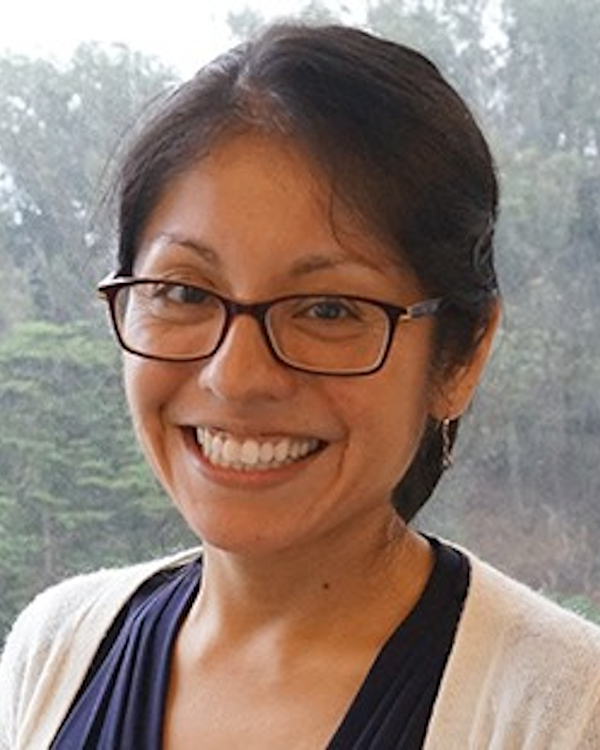
Mercedes F. Paredes, M.D., Ph.D.
University of California, San Francisco
Project Title: Gyrencephalic Model for Neurodevelopmental Disease and Postnatal Cortical Therapeutic Interventions
Grant ID: DP2-NS122550
Funded by the National Institute of Neurological Disorders and Stroke
Mercedes Paredes is an assistant professor in the Department of Neurology and Neuroscience and Biomedical Sciences graduate programs at UCSF. A native of Los Angeles, CA, she received her undergraduate degree in biochemical sciences from Harvard University and then joined the UCSF-MSTP where she did her graduate thesis with Samuel Pleasure and Scott Baraban studying cortical malformations. She subsequently did residency in neurology at UCSF and postdoctoral training in the Alvarez-Buylla lab where she studied the development and survival of cortical inhibitory neurons. Her lab focuses on identifying features of neuronal progenitor proliferation and migration that are unique to the gyrencephalic brain, with an emphasis on the perinatal period. Their approach is to advance ways to directly investigate the human brain and better model its development using systems like the piglet cortex. She holds a passion for mentoring UIM (or underrepresented in medicine) in careers in medicine, STEM, and neurology.
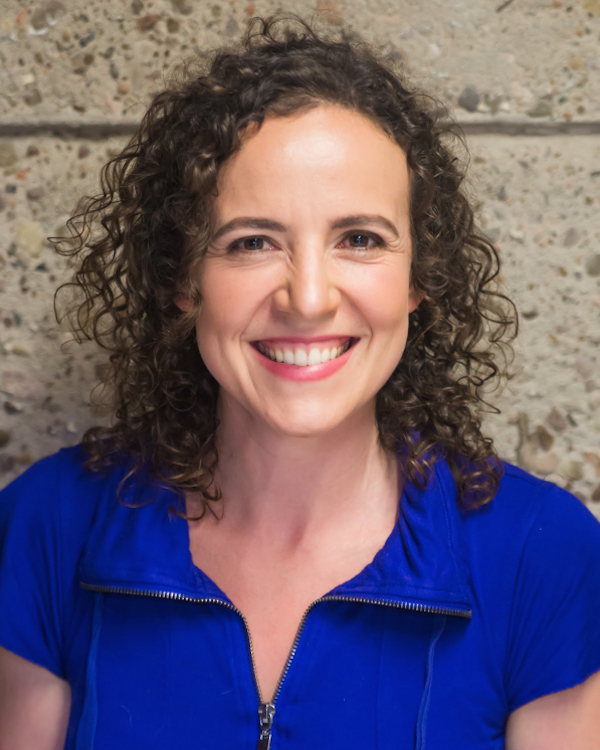
Lisa Racki, Ph.D.
Scripps Research
Project Title: Using Phage to Interrogate Bacterial Heterochromatin
Grant ID: DP2-GM140918
Funded by the National Institute of General Medical Sciences
Lisa Racki joined Scripps Research as Assistant Professor in the Department of Integrative Structural and Computational Biology in 2018. She wrote her undergraduate thesis at Harvard in Fred Ausubel’s lab. As a graduate student at UCSF she became interested in chromatin and studied the enzymatic mechanism of a human ATP-dependent chromatin remodeler in Geeta Narlikar’s lab. She then joined Dianne Newman’s lab at Caltech as an HHMI Damon Runyon postdoctoral fellow to study an ancient starvation response in bacteria, the formation of polyphosphate granules. The goal of her lab at Scripps is to understand how bacteria globally reorganize their subcellular architecture in response to starvation, with a focus on two interlinked processes: polyphosphate granule biogenesis and remodeling of bacterial chromatin. She is a recipient of the Weintraub Award and the Baxter Young Investigator Award.
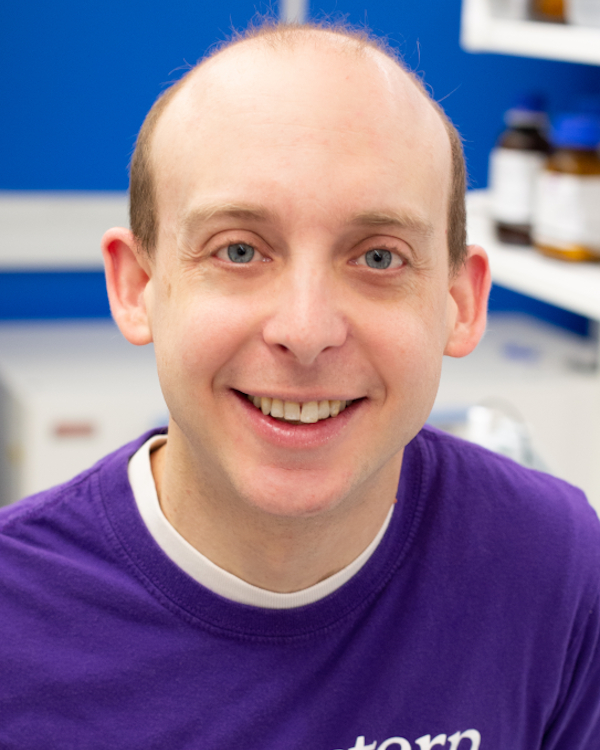
Gabriel J. Rocklin, Ph.D.
Northwestern University Feinberg School of Medicine
Project Title: High-Throughput Discovery of Protein Energy Landscapes in Natural and Designed Proteomes
Grant ID: DP2-GM140927
Funded by the National Institute of General Medical Sciences
Gabriel Rocklin is an Assistant Professor in the Department of Pharmacology at Northwestern University Feinberg School of Medicine in Chicago, IL. His lab focuses on both computational protein design and the development of high-throughput experimental technologies to study fundamental protein biophysics: folding, stability, dynamics, interactions, and more. He graduated from Claremont McKenna College in 2007 with a B.A. in Biology-Chemistry and History, then earned a Ph.D. in Biophysics in 2013 from the University of California, San Francisco, mentored by Brian Shoichet and Ken Dill. He then pursued postdoctoral research in David Baker's lab at the University of Washington as a Merck Fellow of the Life Sciences Research Foundation. He is a member of Northwestern's Center for Synthetic Biology as well as the international RosettaCommons consortium for protein modeling and design.
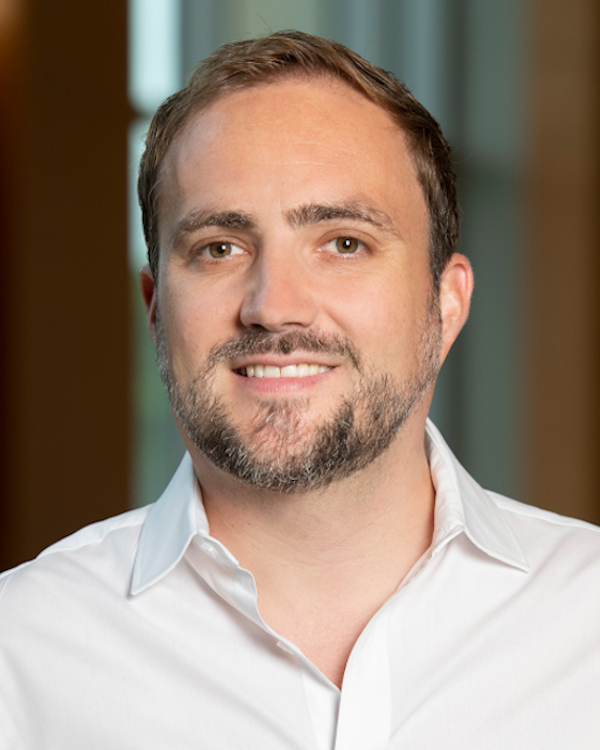
Nicolas Rohner, Ph.D.
Stowers Institute for Medical Research and University of Kansas Medical Center
Project Title: Starvation Resistance and Resilience of Metabolic Dysfunction in Cavefish
Grant ID: DP2-AG071466
Nicolas Rohner is an Assistant Investigator at the Stowers Institute and an Assistant Professor at the University of Kansas Medical Center. Trained as a geneticist, he completed his graduate degree with Christiane Nüsslein-Volhard at the Max-Planck Institute and his postdoc with Cliff Tabin at Harvard Medical School. He joined the faculty of the Stowers Institute in 2015, where his lab studies the genetic basis of starvation resistance in animals and the resilience mechanisms that accompany extreme metabolic adaptations in nature.
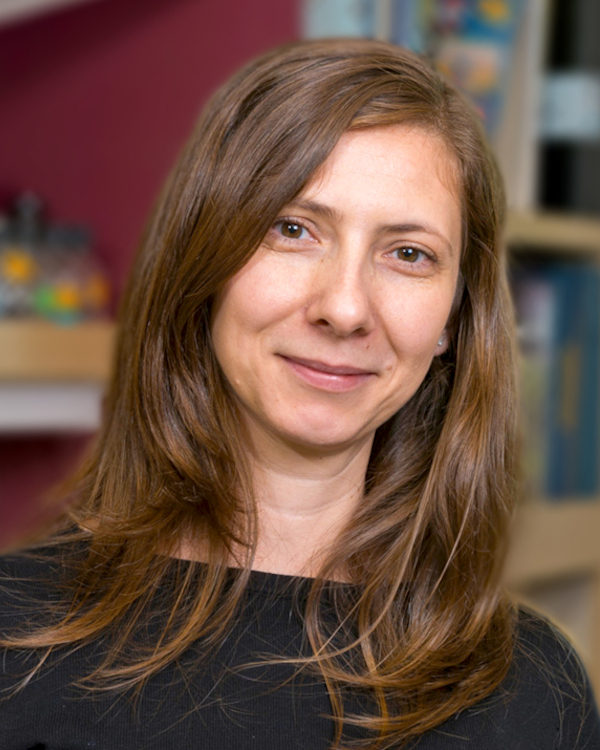
Yasemin Sancak , Ph.D.
University of Washington
Project Title: Molecular Dissection of Mitochondria-Organelle Interactions
Grant ID: DP2-ES032761
Yasemin Sancak is an Assistant Professor in the Department of Pharmacology at the University of Washington in Seattle. She received her Ph.D. from the Massachusetts Institute of Technology where she studied signaling pathways that regulate growth in the laboratory of David M. Sabatini. She then completed her postdoctoral training as a Helen Hay Whitney Fellow with Vamsi K. Mootha at Massachusetts General Hospital where she worked on mitochondrial calcium signaling. Dr. Sancak’s research focuses on understanding how mitochondria are regulated by calcium signaling and contacts with other organelles.
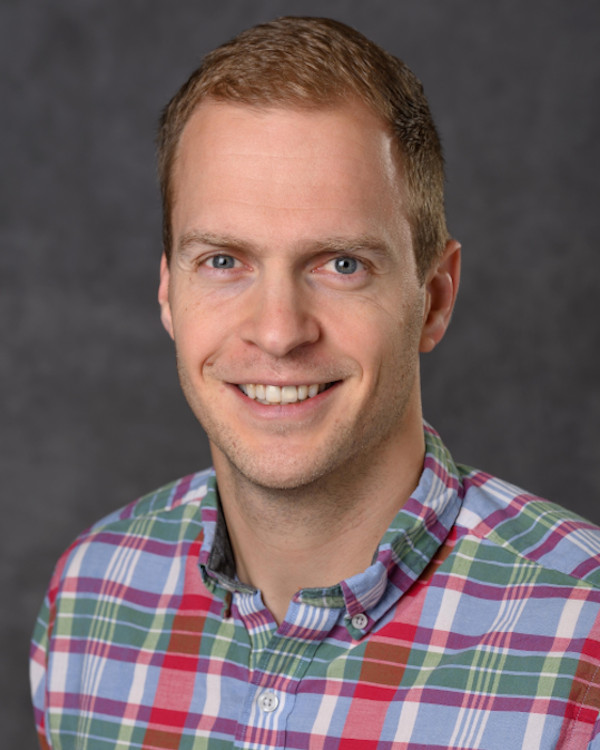
Jens C. Schmidt, Ph.D.
Michigan State University
Project Title: Single-Molecule Analysis of the DNA Damage Response in Living Cells
Grant ID: DP2-GM142307
Funded by the National Institute of General Medical Sciences
Jens Schmidt is an assistant professor in the Department of Obstetrics, Gynecology, and Reproductive Biology and the Institute for Quantitative Health Sciences and Engineering at Michigan State University. He received his undergraduate degree from the Freie Universität Berlin in Germany and completed his PhD studying cell division under the mentorship of Iain Cheeseman in the Whitehead Institute at the Massachusetts Institute of Technology. His postdoctoral work in the lab of Thomas Cech at the University of Colorado in Boulder was focused on developing single-molecule methods to analyze telomerase recruitment to telomeres. Dr. Schmidt’s has been the recipient of a Damon Runyon postdoctoral fellowship, the Damon Runyon Dale F. Frey Award for Breakthrough Scientists, and the NIH Pathway to independence Award.
Maryam M. Shanechi, Ph.D.
University of Southern California Viterbi School of Engineering
Project Title: A Novel Geometric Paradigm for Nonlinear Modeling and Control of Neural Dynamics
Grant ID: DP2-MH126378
Funded by the National Institute of Mental Health
Maryam M. Shanechi is Assistant Professor and Viterbi Early Career Chair in Electrical and Computer Engineering and a member of the Neuroscience Graduate Program and Department of Biomedical Engineering at the University of Southern California. She received her B.A.Sc. degree in Engineering Science from the University of Toronto, her S.M. and Ph.D. degrees in Electrical Engineering and Computer Science from MIT, and her postdoctoral training in Neural Engineering at Harvard Medical School and UC Berkeley. Her research focuses on developing neurotechnology and studying the brain through decoding and control of brain network dynamics. Her lab has developed brain-machine interface technologies for restoring lost emotional function in mental disorders and lost motor function in neurological injuries and diseases. In addition to the NIH Director’s New Innovator Award, she is the recipient of the NSF CAREER Award, ONR Young Investigator Award, MIT Technology Review’s top 35 Innovators Under 35, Popular Science Brilliant 10, Science News 10 Scientists to Watch, and an ARO Multidisciplinary University Research Initiative (MURI) Award.
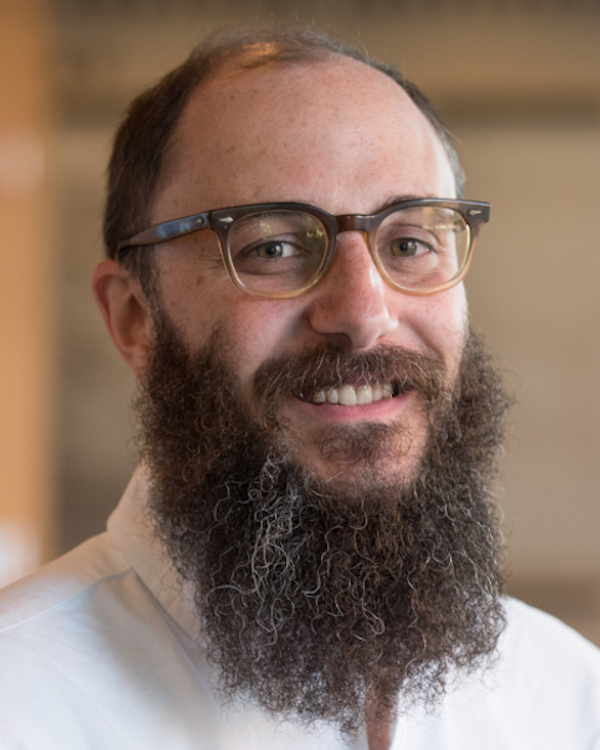
Seth L. Shipman, Ph.D.
Gladstone Institutes and University of California, San Francisco
Project Title: Engineered Mitochondria for Therapeutic Donation and Mitochondrial Genome Editing
Grant ID: DP2-GM140917
Funded by the National Institute of General Medical Sciences
Seth Shipman is an Assistant Investigator in the Gladstone Institute of Data Science and Biotechnology and an Assistant Professor in the Department of Bioengineering and Therapeutic Sciences at the University of California, San Francisco. Seth received his B.A. in Neuroscience from Wesleyan University and his Ph.D. in Neuroscience from UCSF, where he worked with Roger Nicoll to study the formation of synapses in the developing brain. He completed his postdoctoral work with George Church and Jeffrey Macklis at Harvard Medical School, where he built a new molecular tool to store data in the genomes of living cells. His lab is focused on engineering new molecular technologies to understand and intervene in human disease. In addition to the NIH Director’s New Innovator Award, the Shipman lab is supported by the SFARI Bridge to Independence Program and the Pew Scholars Program in Biomedical Sciences.
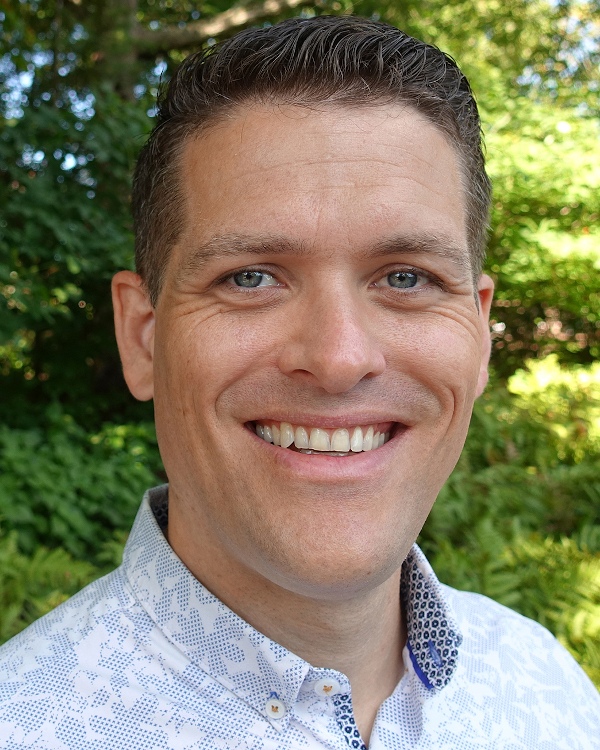
Colenso M. Speer, Ph.D.
University of Maryland
Project Title: A Molecular Connectomics Platform for Multi-Scale Analysis of Activity-Dependent Synapse Development and Plasticity
Grant ID: DP2-MH125812
Colenso M. Speer received his bachelor’s degree in Molecular Biosciences and Biotechnology from Arizona State University where he studied associative learning in drug addiction with Dr. Janet Neisewander. He then trained with the late Dr. Barbara Chapman at the University of California, Davis and completed his Ph.D. in Neuroscience investigating activity-dependent synaptic competition in the developing mammalian visual system. During his postdoctoral fellowship with Dr. Xiaowei Zhuang at Harvard University he co-developed methods for super-resolution fluorescence imaging of neural circuits to capture nanoscale spatial and molecular information over large brain volumes. As an Assistant Professor in the Department of Biology at the University of Maryland, his laboratory combines molecular genetic and super-resolution imaging tools to investigate local protein translation and synaptic proteome remodeling in the development of parallel visual pathways connecting the eyes to the brain.
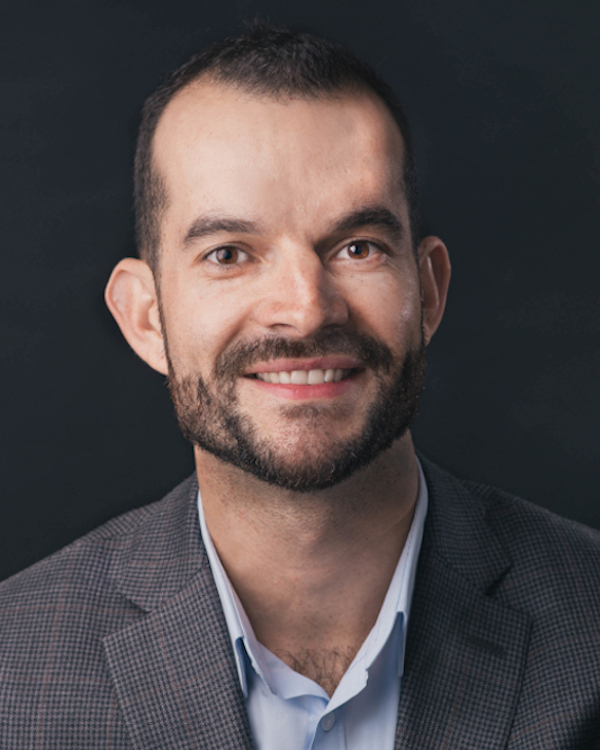
Samuel H. Sternberg, Ph.D.
Columbia University
Project Title: Leveraging Programmable Integrases for Human Genome Engineering
Grant ID: DP2-HG011650
Sam Sternberg received his B.A. from Columbia University in 2007, and his Ph.D. in Chemistry from the University of California, Berkeley in 2014. After serving as Group Leader of Technology Development at Caribou Biosciences, he moved back to Columbia University in 2018, where he is an assistant professor in the Department of Biochemistry and Molecular Biophysics. Sam's research laboratory focuses on RNA-guided bacterial immune systems (CRISPR-Cas) and on the development of these systems for genome engineering. In addition to the NIH Director’s New Innovator Award, Sam is the recipient of a Sloan Research Fellowship in Chemistry and Pew Scholarship in the Biomedical Sciences. Outside of the lab, Sam is a passionate advocate for science communication and outreach, and he recently co-authored a popular science trade book, together with Jennifer Doudna, about the discovery and development of gene-editing technology.

Edward C. Stites, M.D., Ph.D.
Salk Institute for Biological Studies
Project Title: Systems Approaches for Opening Therapeutic Windows
Grant ID: DP2-AT011327
Ed Stites is an Assistant Professor at the Salk Institute for Biological Studies. He trained in mathematics, biophysics, cell biology, cancer biology, medicine, and pathology. His laboratory investigates disease and its response to treatment with a combination of experimental and mathematical methods. Through analyses of molecular data and biochemical mechanisms, mathematics is used to derive new insights into problems of medical importance, and these insights are then experimentally investigated. The scientists in his laboratory each bring expertise in one or more of these areas and share the desire to pursue clever, integrative research with direct relevance to human disease.
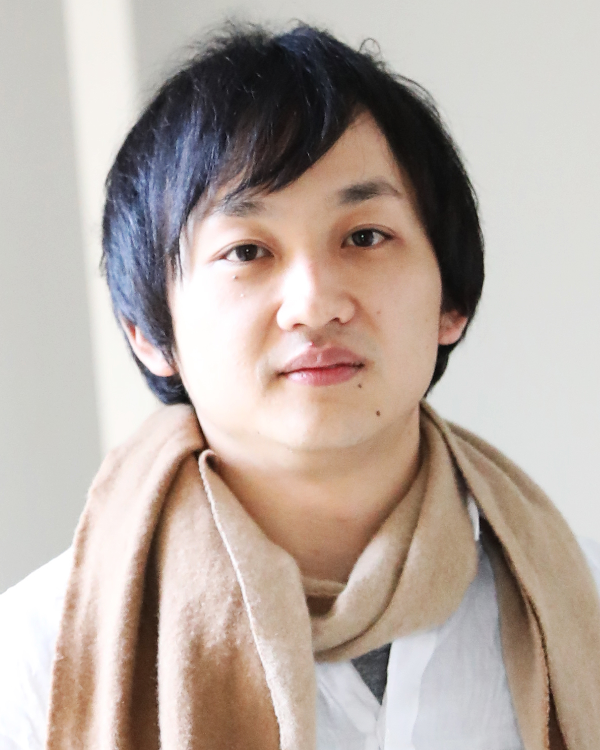
Takanori Takebe, M.D., Ph.D.
Cincinnati Children's Hospital Medical Center
Project Title: Engineering Multi-Organs in a Dish
Grant ID: DP2-DK128799
Takanori Takebe is an Assistant Professor in the Division of Gastroenterology, Hepatology and Nutrition and Developmental Biology at Cincinnati Children's Hospital Medical Center. He is also a founding member and the Director of Commercial Innovation at Center for Stem Cell and Organoid Medicine (CuSTOM). After spending time as a surgical intern at the one of the world’s leading liver transplant center in 2010, he is highly motivated to find alternative approaches to traditional transplantation as he met many patients who were terminal but due to long waiting lists, were unlikely to be recipients of life-saving donor organs. Therefore, after completed by MD degree at 2011, he focused on patient-centered stem cell research, wherein he led a history of innovation for engineering complex hepato-biliary-pancreatic organoids from human stem cells for advancing the study of disease modeling, drug development and transplantation. He was honored with the Robertson Investigator Award, from the New York Stem Cell Foundation and also on the board of directors for International Society for Stem Cell Research (ISSCR).
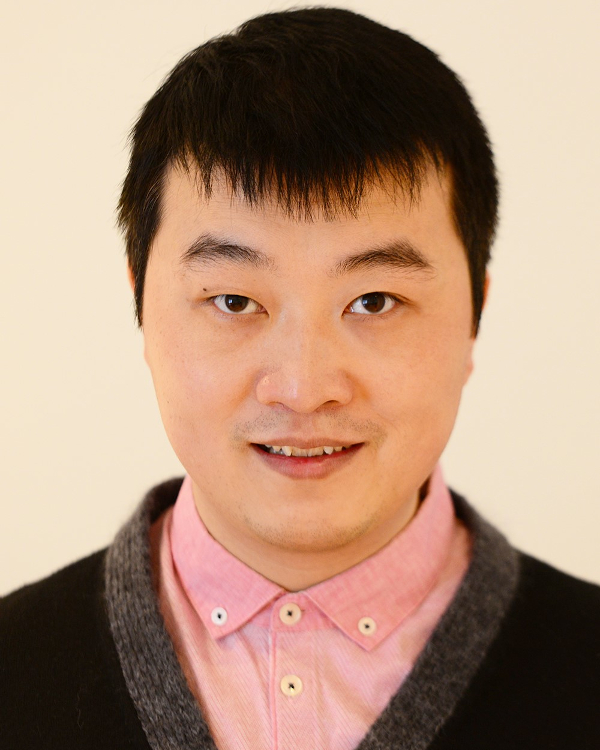
Kaihang Wang, Ph.D.
California Institute of Technology
Project Title: Megabase Scale Genome Engineering and Synthesis in Mammalian Cells
Grant ID: DP2-GM140937
Kaihang Wang is taking a lead in the emerging field of genome engineering and synthetic biology. Kaihang received his BSc with first class honors from University College London and his PhD from the University of Cambridge. After completing a Junior Research Fellowship at Trinity College, Cambridge and postdoctoral research at MRC-Laboratory of Molecular Biology, he joined Caltech faculty in Sep 2018. Kaihang does research aimed at developing methods to "write" the sequences of entire genomes within living cells, enabling the engineering of synthetic organisms with new genetic codes and new capabilities. His future research aims to further develop this genome engineering technology, taking it beyond bacteria to animal cells, and use it to develop a variety of new biotechnology applications.
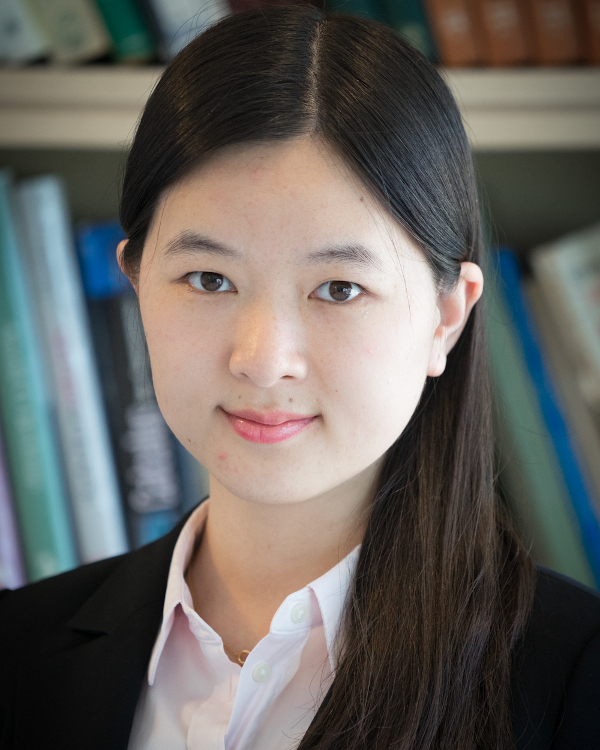
Lu Wei, Ph.D.
California Institute of Technology
Project Title: Super-Resolution Chemical Imaging for Biomedicine
Grant ID: DP2-GM140919
Funded by the National Institute of General Medical Sciences
Lu Wei is an Assistant Professor in the Division of Chemistry and Chemical Engineering at the California Institute of Technology. Lu received her B.S. in Chemistry from Nanjing University in 2010. She then obtained her Ph.D. in Chemistry at Columbia University, working with Dr. Wei Min on nonlinear optical spectroscopy and microscopy. In 2015, Lu began her postdoctoral work at Columbia University on developing super-multiplex microscopy for biomedical applications by chemical imaging of new probes. At Caltech, Lu establishes a highly interdisciplinary research program that integrates advanced optical microscopy, physical chemistry, and chemical biology to provide new measurement tools for visualizing complex biological processes with enhanced spatial, temporal and molecular precision.
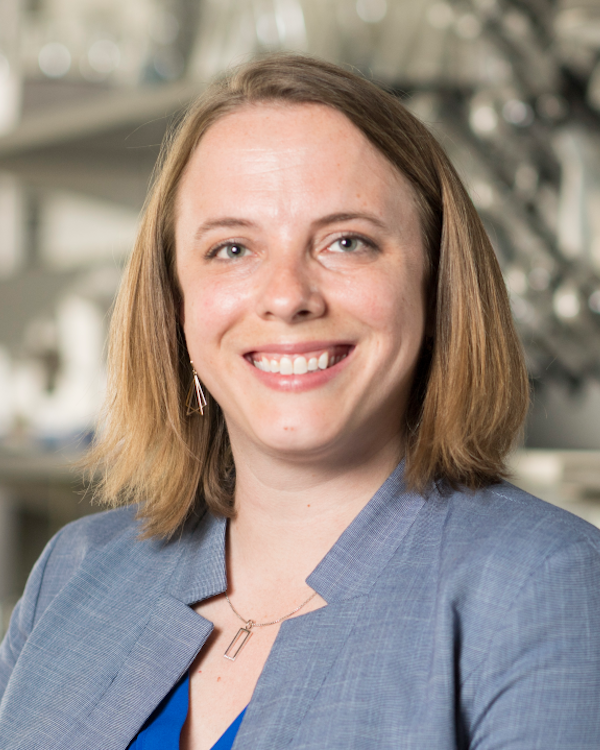
Katharine A. White, Ph.D.
University of Notre Dame and Harper Cancer Research Institute
Project Title: Roles for Increased Intracellular pH and Heterogeneity in Cancer
Grant ID: DP2-CA260416
Katharine A. White is the Clare Boothe Luce Assistant Professor of Chemistry and Biochemistry at the University of Notre Dame and a member of the Harper Cancer Research Institute. Dr. White earned her B.S. in Chemistry from Saint Mary’s College in Notre Dame, IN. She completed her graduate work at MIT with Alice Y. Ting, where she developed the PRIME methodology to fluorescently label proteins of interest inside living cells. As a Ruth L. Kirschstein NIH Postdoctoral Fellow with Diane L. Barber at the University of California, San Francisco, Dr. White elucidated detailed molecular mechanisms of pH sensing proteins and revealed an adaptive role for pH sensing mutations in cancer. Started in 2019, the White Lab uses multidisciplinary approaches to understand how cellular pH dynamics regulate proteins, pathways and cell behaviors. Combining optogenetic and chemical tool development with biochemical and cell biological approaches, the White Lab seeks to answer fundamental questions on the molecular mechanisms driving cancer cell behavior, heterogeneity, and response to therapies.
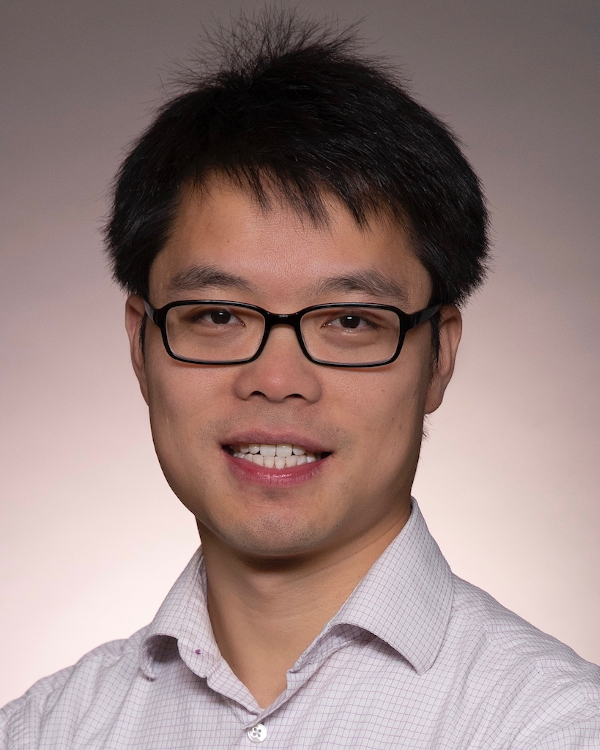
Xuebing Wu, Ph.D.
Columbia University Irving Medical Center
Project Title: Genome-Wide Studies of the Noncoding Functions and Mechanisms of Human mRNAs
Grant ID: DP2-GM140977
Xuebing Wu is an Assistant Professor in the Department of Medicine and the Department of Systems Biology at Columbia University Irving Medical Center. Dr. Wu received a B.S. and M.S. in Control Science and Engineering from Tsinghua University, Beijing and a Ph.D. in Computational and Systems Biology from MIT, working with Phillip Sharp and Christopher Burge. As a Helen Hay Whitney Fellow, he continued postdoctoral work on functional genomics of RNA structures with David Bartel at Whitehead Institute/MIT. Research in the Wu laboratory integrates CRISPR, genomics, and machine learning to decode and target RNA in human health and disease. In addition to the NIH Director’s New Innovator Award, Dr. Wu has received a number of distinctions including the Pew-Stewart Scholars award and the RNA Society / Scaringe Award.

Kelley Yan, M.D., Ph.D.
Columbia University Irving Medical Center
Project Title: Directing Cell Fate Along the Intestinal Enteroendocrine Lineage
Grant ID: DP2-DK128801
Kelley Yan is a physician-scientist with a background in clinical gastroenterology, structural biology, and stem cell biology. She received her MD and PhD degrees from the Mount Sinai School of Medicine and then completed her clinical training in gastroenterology and postdoctoral fellowship in intestinal stem cell biology at Stanford University as a CIRM MD Scholar. Currently she is the Dorothy L. & Daniel H. Silberberg Assistant Professor of Medicine (Division of Digestive & Liver Diseases) and of Genetics & Development at Columbia University Irving Medical Center. Her lab uses multidisciplinary approaches to study the behavior of intestinal stem cells with the ultimate goal of manipulating them for therapeutic benefit. In addition to the NIH Director’s New Innovator Award, she is a recipient of the Burroughs Wellcome Fund Career Award for Medical Scientists, the ASCI Young Physician-Scientist Award, Louis V. Gerstner Foundation Scholars Award, Lisa Dean Moseley Foundation Award, and the Irma T. Hirschl Career Award.
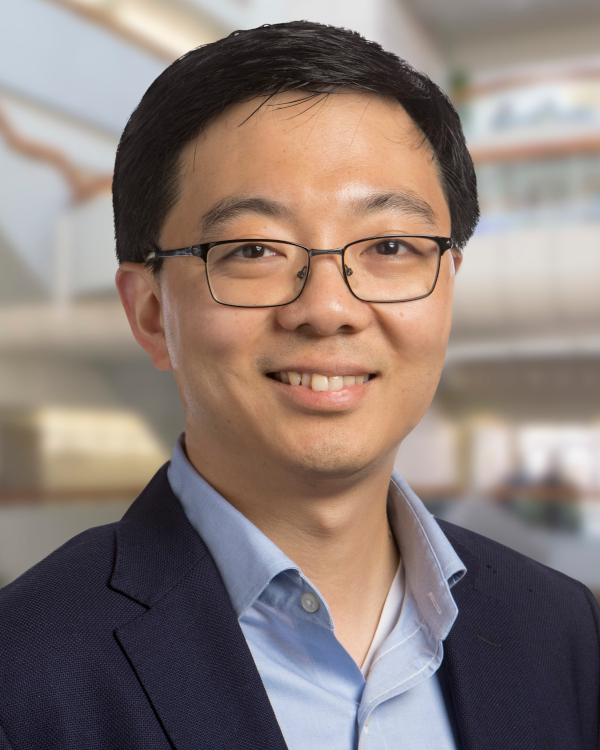
Li Ye, Ph.D.
The Scripps Research Institute
Project Title: Modulating Somatosensory Network to Target Metabolic Diseases
Grant ID: DP2-DK128800
Dr. Li Ye is an Assistant Professor in the Department of Neuroscience and Molecular Medicine at The Scripps Research Institute. He received his B.A. in Biological Sciences from Tsinghua University in Beijing in 2006. He obtained his Ph.D. from Harvard University in the laboratory of Bruce. Spiegelman, focusing on using chemical biology approaches to study the transcriptions control of energy metabolism. In 2013, Li moved to Stanford University where he worked in the laboratory of Karl Deisseroth, focusing on developing and applying activity-dependent, brain-wide circuit mapping tools. Currently, his lab is interested in how the neural circuit adapts to metabolic changes and how such adaptation affects the control of organismal physiology at the biochemical, cellular, and systems levels. The lab also focuses on enabling novel techniques for imaging and circuit manipulations in intact large tissues.
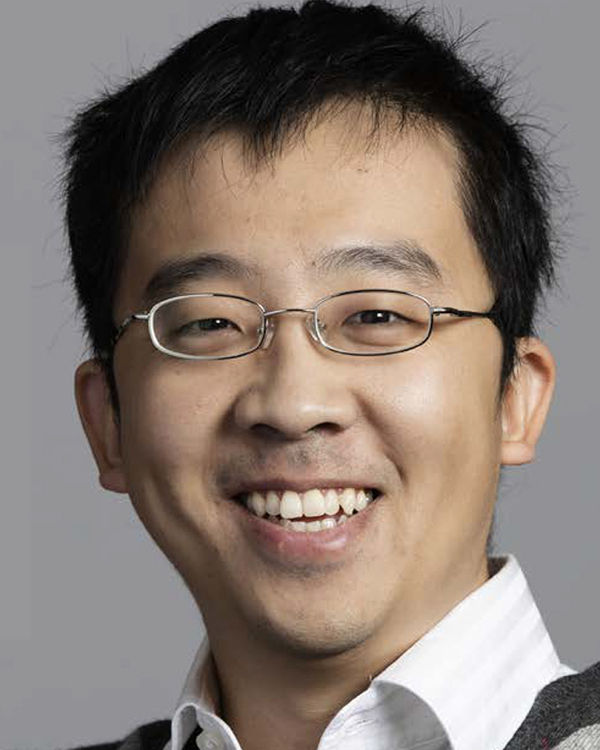
Bokai Zhu, Ph.D.
University of Pittsburgh, University of Pittsburgh School of Medicine, and Aging Institute of UPMC
Project Title: Decoding the Regulation and Functions of Mammalian 12h-Clock
Grant ID: DP2-GM140924
Funded by the National Institute of General Medical Sciences
Bokai joined the Aging Institute at UPMC in September 2018, where he is also an Assistant Professor of Medicine in the division of Endocrinology and Metabolism at University of Pittsburgh School of Medicine. Bokai received his B.S. degree from Peking University, China and received his Ph.D. degree at the Pennsylvania State University with Dr. Jeffrey Peters. After that, he continued with his post-doctoral training with Dr. Bert W O’Malley at Baylor College of Medicine at Houston, where he uncovered a novel mammalian ultradian 12-hour pacemaker that runs independently from the circadian rhythm to coordinate cellular stress response with metabolism. His lab is currently investigating the regulation as well as the physiological/pathological functions of the 12-hour pacemaker, taking a combination of computational, biochemical, genetic, cellular, imaging and genomic approaches. In addition to the NIH Director’s New Innovator Award, he is also a recipient of American Diabetes Association’s Junior Faculty Development Award.



